- Privacy Policy

- Class 11 Notes
- _Major English Class 11
- Class 12 Notes
- _Compulsory English Class 12
- Teachers Service Commission
- _TSC Old & Model Questions
- _TSC Curriculum
- Courses in Nepal
- Action Research

Admission Open

Unit 1 - Critical Thinking | All Exercises | Compulsory English Class 12

Working With Words
Comprehension, writing , grammar .

Mukesh Raut
You may like these posts, post a comment, useful links.
- Teacher Service Commission
- Public Service Commission
- Curriculum Development Centre
Most Viewed Posts

The Story of Prometheus: Summary and Question Answer | Major English Class 11
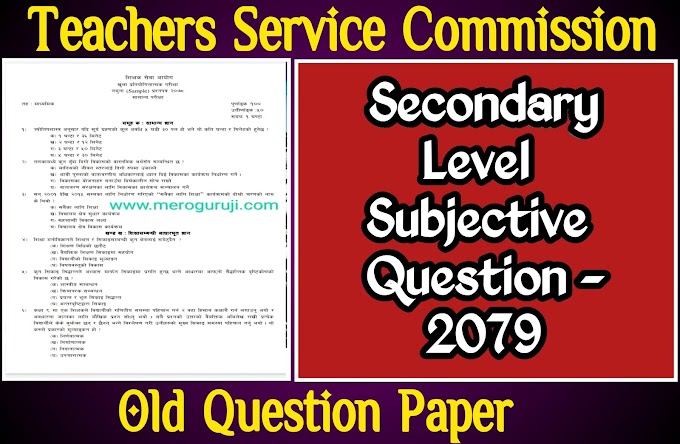
TSC Secondary Level Subjective Questions 2079
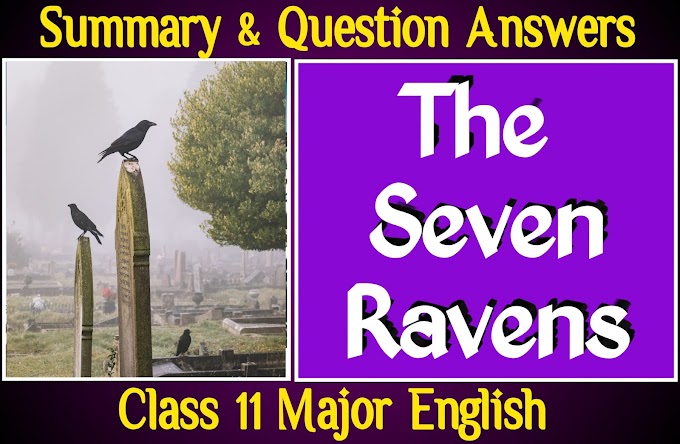
The Seven Ravens | Summary And Question Answers | Major English Class 11
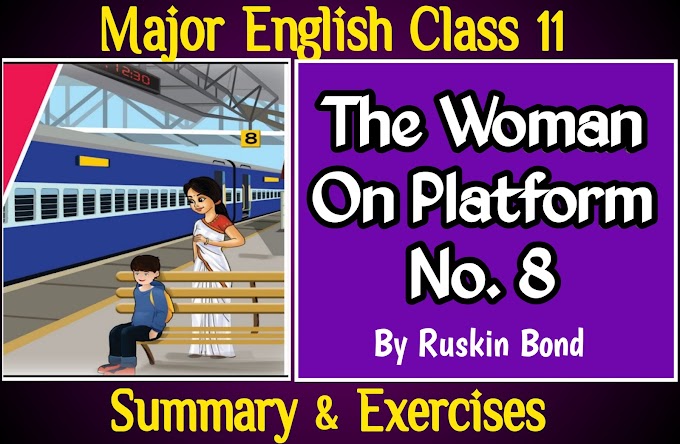
A Woman On Platform No. 8 By Ruskin Bond: Summary and Exercises

The Cactus by O'Henry: Summary and Exercises | Major English Class 11
Search by tags.
- Action Research 3
- Compulsory English Class 12 23
- Courses in Nepal 1
- Major English Class 11 32
- Model Question 1
- Teacher Service Commission 17
- TSC Curriculum 9
- TSC Guide 17
- TSC Model Question 17
- TSC Old Question 14
Search By Categories

Labels Cloud

- Terms & Conditions
Copyright (c) 2023 Mukesh Raut All Rights Reserved
Footer Copyright
Contact form.
- Privacy Policy
- Terms and Conditions

Unit 1 : Critical Thinking (Know Thyself) Class 12 English Exercise

Are you searching for exercise of unit 1 critical thinking , then you are at the right place. In this blog you will get the complete note and exercise of this chapter . You can also check the other chapters of Class 12 English . I have uploaded new chapters so don't forget to check this.
Unit 1 : Critical Thinking (Know Thyself) Class 12 English Exercise
Complete note, answer and questions grammar, of Critical Thinking (Know Thyself) Class 12 Unit 1 by Edubook Ram Kumar Sah .
Summary of Critical Thinking (Know Thyself)
In this passage from "Wonder," R.J. Palacio describes the protagonist's first day of English class with Mr. Browne in great detail. As the bell sounds and the narrator dashes to the assigned room, the author vividly depicts the busy scene. The main character watches his friends, especially the popular Jack, and their instructor, Mr. Browne, who sticks out with his yellow beard, while feeling like an outsider.
As Mr. Browne presents the idea of "precepts"—guidelines about fundamental facets of life—the story progresses. The instructor fosters student involvement by encouraging them to express their opinions on significant issues. Ideas about everything from rules and homework to families, the environment, and sharks can be drawn on the chalkboard. Among the many recommendations, Mr. Browne emphasizes the most important one: self-awareness.
Mr. Browne gently explains his September guideline, which is, "When given the choice between being right or being kind, choose kind." He starts a monthly precept sharing practice that inspires students to consider the precepts and compose essays explaining their implications. The instructor's dedication to encouraging self-awareness and kindness makes the classroom a happy and inviting place.
This passage from R.J. Palacio's "Wonder" delves into the protagonist's first impressions of his new English lesson. The story expertly evokes the busy school hallway and conveys the protagonist's sense of urgency as he runs to his next lesson, giving readers a realistic and vivid scene.
The excerpt concludes with a moment of realization for the protagonist — a revelation that, regardless of the challenges he might face, he is optimistic about enjoying school. This hints at the transformative journey the character is about to embark on, setting the stage for the broader narrative in "Wonder."
Exercise of Critical Thinking (Know Thyself)
Here is the all solution you need !
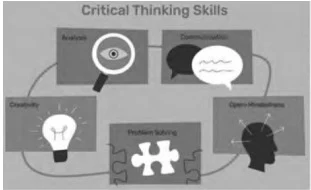
%20@puspas.com.np_7.jpg)
Critical Thinking
.2. According to Josh Lanyon, “If there was one life skill everyone on the planet needed, it was the ability to think with critical objectivity.” Justify this statement with your logic.
According to Josh Lanyon, everyone should strive to acquire the critical objective thinking skill since it is an essential life skill. Let's use logic to support this assertion:
1. Informed Decision-Making:
2. problem solving:.
People who possess critical objectivity are able to tackle issues and challenges with objective and clarity. One's chances of coming up with workable and realistic answers are increased when they objectively assess the situation, take into account several viewpoints, and refrain from emotional biases.
3. Interpersonal Relationships:
Misunderstandings, poor communication, or divergent viewpoints are common causes of interpersonal disputes. People who possess critical and objective thinking skills are better equipped to handle these difficulties because they can comprehend the perspectives of others, relate to people from different backgrounds, and settle disputes in a fair and reasonable way.
4. Professional Success:
In the professional realm, critical thinking and objectivity are highly valued skills. They support strategic decision-making, efficient problem-solving, and the capacity to adjust to quickly changing surroundings. Critical thinkers are highly valued for their analytical abilities and good judgment in the business.
5. Media Literacy:
The ability to think critically is crucial for interpreting media content in the age of information overload. People may distinguish reliable sources from false information, propaganda, or skewed narratives with the aid of critical objectivity. This ability is especially crucial for building a society that is intelligent and perceptive.
6. Continuous Learning:
A continual learning and adaptive mindset is fostered by critical objectivity. Critical thinkers are more willing to challenge preconceived notions, investigate novel concepts, and broaden their knowledge. This flexibility is essential in a world where conditions and knowledge are ever-changing.
7. Global Citizenship:
It takes critical and impartial thinking to comprehend many points of view and global concerns in today's interconnected globe. This ability is essential for fostering empathy, tolerance, and productive discourse on a worldwide basis.
To sum up, critical objective thinking is a fundamental life skill that improves communication, problem-solving, decision-making, success in the workplace, media literacy, lifelong learning, and global citizenship. It gives people the ability to face obstacles in life with reason and openness, which promotes both individual development and societal well-being.
Hope this article help you to your english exercise . Thank You for visiting this site . Please share with your friends and relatives . Stay keep supporting, and keep learning.
Next Chapters :
Unit 1 Critical Thinking (know Thyself)
Unit 2 Family
Unit 3 Sports
Unit 4 Technology
Unit 5 Education
Unit 6 Money and Economy
Unit 7 Humour
Unit 8 Human and Culture
Unit 9 Ecology and Environment

edubook-Ram Kumar Sah
You may like these posts, post a comment, popular posts.

पाठ ४ योगमाया कक्षा ११ नेपाली अभ्यास | Unit 4 Yogmaya Exercise Questions Answers Class 11 Nepali

Unit 3 | Media And Society | Class 11 English Exercise , Questions And Answers,
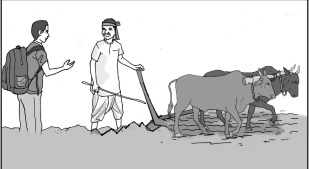
पाठ २ गाउँको माया कक्षा ११ नेपाली अभ्यास - इस्माली (Unit 2 Gauko Maya Exercise Class 11 Nepali )
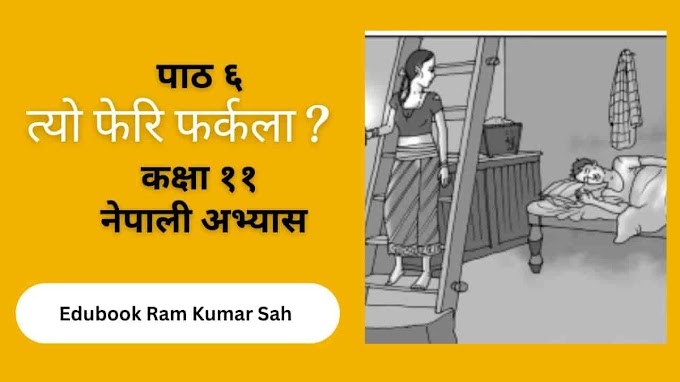
Unit 6 Tyo Feri Farkala Exercise Class 11 Nepali | पाठ ६ त्यो फेरि फर्कला कक्षा ११ नेपाली अभ्यास | Summary
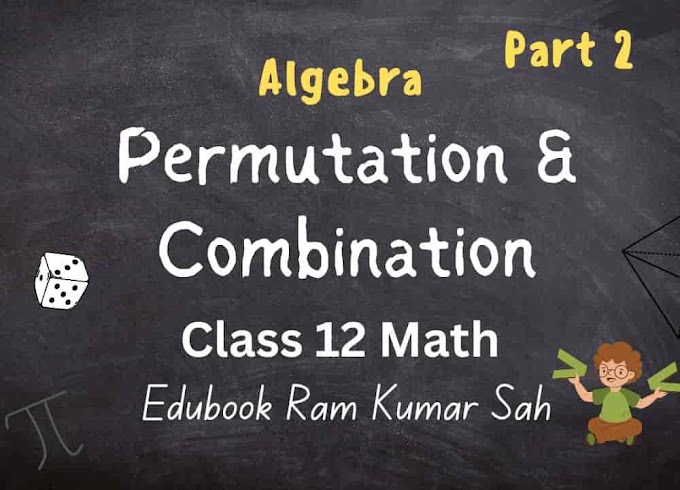
Combination Class 12 Math | Complete Note | NEB | PDF | Important Numerical and Concept
- Class 11 Nepali 5
- class-11-english 10
- Class-11-Math 1
- Class-12-English 9
- Class-12-Math 5
- Computer-11 2
- IOE-Physics 3
Featured Post
Binomial theorem class 12 mathematics | complete note | pdf | concept and numericals.
In mathematics, especially in algebra and combinatorics, the binomial theorem is a fundamental idea. In Class 12 Math, students lear...

Footer Copyright
Contact form.
The SR Zone
- Class 12 English Notes
- Class 12 Nepali Notes
- English Grammar Notes
- Class 11 English Notes
- Class 11 Nepali Notes
- Books PDF Download
- Class 11 Questions
- Class 12 Questions
- Download App
Class 12 English Notes: Guide & Summary 2080
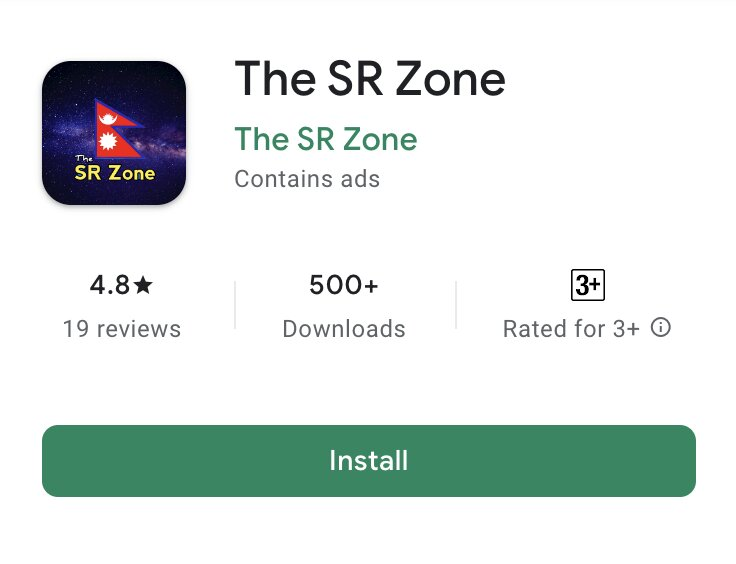
Are you looking for easy to understand notes for your 12th grade English class? The SR Zone has made Class 12 English notes for the year 2080. It has summaries and notes from all the chapters in your English textbook.
Just click on the links corresponding to the chapter name, and you will see the solution and notes of that chapter. Do not forget to share these with your friends too.
Section - I : Language Development
Section -ii : literature, one act plays.
This set of notes is meant to help you understand each chapter well and help you answer questions from the book. It has answers to exercises, explanations of grammar rules, solutions to questions from the textbook, and summaries of each chapter.
Having all these things together in one place makes studying English easier and more effective. You don't have to look everywhere to find answers or learn about the different parts of English. The notes cover everything you need from one simple guide.
About Class 12 English Guide 2080
Hey guys, check out my notes for Class 12 English! I've put together all the important info, notes, exercise solution, grammar and summary from the textbook in this one easy-to-use guide which is called "Class 12 English Guide".
This guide covers everything - all the language development units like Family, Sports, Humour etc. And all the literature sections with Stories, Poems and Essays. You'll find notes and summaries for each chapter right here.
Just click on the chapter names to see the solutions for each exercise. I've also included the option to download a PDF version of the notes at the end of each chapter. No more searching all over the place online.
Here's a quick breakdown of what's included:
- Section 1 - Language Development units with 20 chapters
- Section 2 - Literature with Stories, Poems and Essays
Don't stress about exams - all the questions and answers are here too. And if you want offline access, you can download my Class 12 English Notes 2080 app from the Play Store.
Getting these notes is simple - either download the specific chapter PDFs or grab the full app. Let me know if you have any other questions! My goal is to make this exam prepation as easy and stress-free as possible.
I've also included some tips on how to write the best answers for your English exams. Don't sweat the small errors, just focus on getting your ideas down on paper. And don't be afraid to give your creative ideas - that's what English is all about. You've got this!
Why are Class 12 English Notes important?
- Chapter summaries - These quickly explain what happens in each part of the story. They help you understand the main ideas.
- Exercise answers - You'll find the solutions for all the questions at the end of each chapter. This can help you check your work.
- Grammar lessons - There are explanations of important grammar topics you need to know.
- Textbook solutions - The notes go through your textbook and solve all the problems step-by-step.
How to get Notes of Class 12 English Book ?
Where can i find pdf of class 12 english notes, benefits of class 12 english textbook solution, download class 12 english notes 2080 app ( by the sr zone ) .
The SR Zone provides an easy to use app for Class 12 English notes. This app has all the study materials together in one place on your mobile.
To get the app, search "Class 12 English The SR Zone" on the Google Play Store. Or visit tsz.com.np website for a direct download link. Installing the app is simple and free.
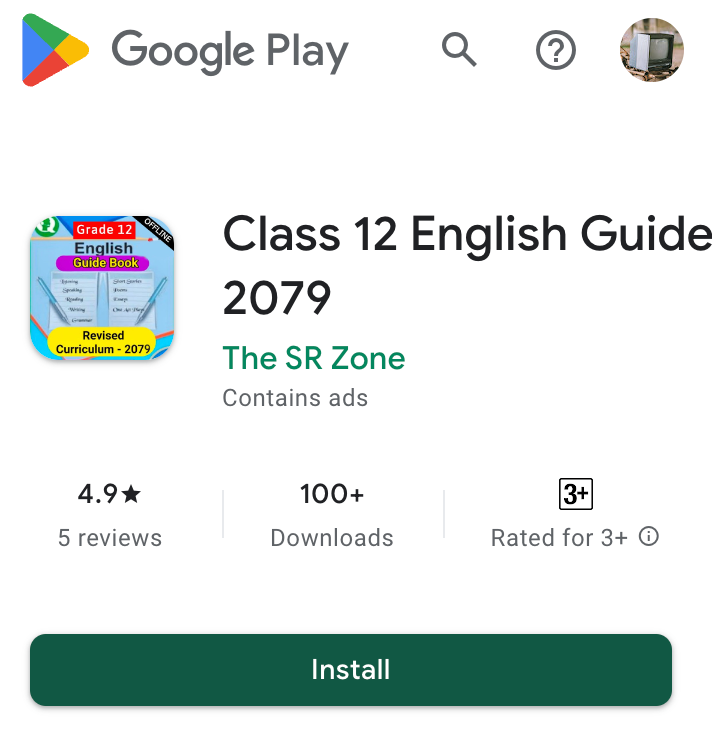
Some good things about using The SR Zone's Class 12 English notes:
- It makes preparing for exams more manageable as all notes are organized well.
- You don't have to search different places for your study materials. Everything you need is in one app.
- The detailed notes help you better understand lessons and concepts.
- Having notes on your phone means you can revise anytime, anywhere.
The Class 12 English notes app from The SR Zone is a good helper for students. With full notes and solutions for all chapters, you can study well and score better in your exams. Download the app notes from Play Store or tsz.com.np website today!
How to get Good Marks in Class 12 English Exam?
English is a tough subject for many students. The main problem I see with students is they don't like thinking hard or writing their own answers. They just want to copy things, so who will help develop their creativity?
The best tip I can give is don't stress too much about grammar mistakes. Focus on answering questions right instead of writing perfectly. Bad spelling and lack of creativity holds students back in English, along with grammar errors.
Don't let feeling uncomfortable stop you from expressing yourself and your thoughts freely. Keep writing down what you learned. Then, you can work on improving your language and grammar skills. First learn to write, then make it easy to understand. Writing well actually takes practice.
Frequently Asked Questions about Class 12 English Notes:
Question 1: Do The SR Zone's Class 12 English notes work for NEB?
Answer 1: Yes, the notes cover the main topics for National Education Examination (NEB) board. They are designed to match what is usually taught in Class 12 English textbooks designed by curriculum developement centre.
Question 2: Do the notes have explanations for all chapters?
Answer 2: Yes, The SR Zone provides full notes and solutions for every chapter in the Class 12 English textbook. You get summaries, exercise answers and extra details to cover the whole syllabus.
Question 3: Can I use the notes without internet?
Answer 3: Yes, once you download the Class 12 English notes PDF from The SR Zone website, you can view it offline on your device. You can also use our Class 12 English Notes 2080 by The SR Zone app to access notes when offline after downloading.
Question 4: Are the notes helpful for exams?
Answer 4: Definitely! The detailed notes from The SR Zone help students understand concepts better, revise efficiently and do well in exams with chapter summaries, explanations and exercise solutions.
Question 5: Can I only use these notes to prepare?
Answer 5: The SR Zone notes are a good study resource to get above 90% in English subject. Using only them can give you a complete understanding. It's better to also refer to look at past year questions and their pattern, your official textbook, other reference books and do extra practice questions.
Question 6: Are the notes updated for the latest syllabus?
Answer 6: The notes follow the general syllabus of 2080BS updated on 2023. You can also check official syllabus to confirm everything lines up perfectly. Efforts are made regularly to keep the content updated.
Question 7: How can I ask questions about the notes?
Answer 7: If you have any queries or need clarification, contact The SR Zone using our website contact form or social media channels. We are ready to help students understand better.
Question 8: Do I have to pay for the Class 12 English notes?
Answer 8: No, the notes and basic study materials are free to download from The SR Zone in PDF format or using their app. While some premium services may cost money, the basic notes are available without charges.
Also Read:
- Class 12 English Grammar Solution
- Class 12 Nepali Guide
- Class 12 English Guide APK Download
- Class 12 English Model Question Paper
- Class 11 English Guide
Thank you for reading this post!
To read this content offline, click "Download PDF" button. Wait for the PDF preview to load. Then, click the download symbol or "save" button and choose the download location.
This PDF has been downloaded from tsz.com.np! Subscribe The SR Zone on YouTube for NEB Notes and Summaries! Visit tsz.com.np for more PDFs !
Unit 1 Critical Thinking Neb Class 12 Language Development | Critical Thinking [ Know Thyself ] Compulsory English by Suraj Bhatt
Unit 1: critical thinking: know thyself, before you read.
a. What are critical thinking skills?
The key critical thinking skills are: analysis, interpretation, inference, explanation, self-regulation, open-mindedness, and problem-solving.
b. How do critical thinkers solve the problems? Guess the steps they follow while tackling a problem.
Critical thinkers solve problems by applying various critical thinking skills to their tasks. I guess they follow the following steps while tackling a problem:.
▪︎ They try their best to make a deep analysis of the problems.
▪︎ They interpret the problems by applying different critical thinking skills.
▪︎ They try to explain the solutions to their problems using many possible means.
▪︎ They apply various reasonings to reach their authentic conclusion.
▪︎ They try to generate different logic behind their tasks of solving problems.
WORKING WITH WORDS
A. Find the words from the text that match with the following meanings.
a.……………walking by dragging one's feet along or without lifting them fully from the ground
》 Shuffling
b. ……………drawing pictures or patterns while thinking about something else.
》 Doodling
c. ……………a piece of flat metal with writing on it
》 Plaque
d. ……………a general rule intended to regulate behaviour or thought
》 Precept
e. ……………move or go in a furtive or stealthy way
》 Sneak
B. Consult your teacher and define the following thinking skills.
a. Convergent thinking:
Convergent thinking skills refer to a type of thinking skill that is applied at the conclusive point. This type of thinking occurs when the solution to a problem can be reached by applying established rules and logical reasoning. This type of thinking helps to solve a problem with the help of known information that is based on established rules and logic.
b. Divergent thinking:
Divergent thinking skills refer to a type of thinking skill that is applied to generate creative ideas by exploring many possible solutions. It is a thought process or method to seek various ideas related to the solution of problems. This thinking skill involves spontaneous and free-flowing ideas and the logic of the mind. All the possible mental ideas related to the solution are examined deeply and analyzed. All these ideas are given much preference when solving problems.
c. Critical thinking:
Critical thinking skills refer to a type of thinking skill that is applied to generate ideas for the solution of problems. This skill is directly related to the mind and logic. This skill is an intellectually disciplined process of mind and is considered a broad concept to analyse something or somebody actively and skillfully in various aspects. This skill involves conceptualising, applying, analysing, synthesising, and/or evaluating information gathered from, or generated by, observation, experience, reflection, reasoning, or communication as a guide to belief and action.
d. Creative thinking:
Creative thinking skills refer to a type of thinking skill that is applied using various abilities and soft skills to come up with new solutions to problems. A creative thinking skill is a thought process that is used to tackle various problems from different and creative angles, using the right tools to assess them and develop a plan and the right solution. In this skill, creativity, as well as innovative ideas, are given much preference. In this thinking skill, new or unique ideas are applied that haven't been created or tried before. It is regarded as a highly valued skill that helps to seek out solutions to problems in very new and creative ways. Newness in ideas is the basis of creative thinking.
COMPREHENSION
Answer the following questions.
a. Who was Jack? How did he make children laugh?
Jack was a classmate of the narrator. He was a quite friendly kid who had many friends. He made children laugh by cracking jokes and riddles.
b. Why are “Sharks” important to Reid?
"Sharks" are important to Reid because they help to make the environment of the ocean clean through their act of eating dead things in the ocean.
c. What does Mr. Browne think about the most important thing?
Mr. Browne thinks the precept of knowing yourself is the most important thing. According to him, we have to know about ourselves and try to evaluate for the best results within us.
d. What is that has not been noticed by the student?
The plaque next to the door of the school is that has not been noticed by the students.
e. How did Jack make fun of the English class?
Jack made fun of the English class by putting forward his answer to Mr. Browne's question related to the purpose of attending in the classroom.
f. What were the students going to do at the end of the month?
At the end of the month, the students were going to write an essay on Mr. Browne's new precept.
g. What particular act of students surprised a girl student?
The students' act of submitting their personal precepts to an English teacher, Mr. Browne, during summer vacation surprised a girl student.
Read 👉 One-act Play The Bull by Bhimnidhi Tiwari Summary and Solution
CRITICAL THINKING
a. Have you made your own precept after you read this lesson? What is it? Share it with your friends.
Answer:
Percept refers to a general rule intended to regulate behaviour or thought. This is quite an important concept to bring about various positive changes in humans' behaviour or houghts. Yes, I have made my own precept after reading this lesson. The special perception that I gained after this lesson is:
HOMEWORK CAN HELP YOU BE CREATIVE.
I have made this perception because the habit of doing homework brings various unprecedented changes within students. Homework is the best way to develop creative abilities. It offers challenges to the students and makes them able to find solutions. Doing homework prevents them from getting punished. They get admired by their teachers if their homework is good. Completed homework allows them to stay confident and fearless all the time.
b. According to Josh Lanyon, “If there was one life skill everyone on the planet needed, it was the ability to think with critical objectivity.” Justify this statement with your logic.
Creative thinking skills refer to a type of thinking skill that is applied using various abilities and soft skills to come up with new solutions to problems. A creative thinking skill is a thought process that is used to tackle various problems from different and creative angles, using the right tools to assess them and develop a plan and the right solution. In this skill, creativity, as well as innovative ideas, are given much preference. In this thinking skill, new or unique ideas are applied that haven't been created or tried before. It is regarded as a highly valued skill that helps to seek out solutions to problems in very new and creative ways. Newness in ideas is the basis of creative thinking. The key critical thinking skills are: analysis, interpretation, inference, explanation, self-regulation, open-mindedness, and problem-solving.
Josh Lanyon's statement regarding critical objectivity somewhat reflects the core idea related to the development of human skills on this planet. He has presented the facts behind the skills of the people on this planet. Here, Josh has related the life skills of people on this planet to critical objectivity. According to him, the need for life skills itself was the ability within people to think with critical objectivity.
People on this planet moved along with different life skills in their lives. From ancient times up until now, people have been doing development in the sector of skill development and invention. The development of people on this planet was possible due to their ability to have critical objectivity, which runs along with their life skills, knowingly and unknowingly.
Critical objectivity always moves along with life skills. People have applied various life skills in their lives, which means they can think with critical objectives. Behind all these life skills, the ability to think with critical objectivity always remains with them.
Write an email to your friend explaining an interesting class you had.
From: [email protected]
To: [email protected]
Subject: An interesting class I had
My dearest friend, Sita,
I'm feeling so glad to have received your email this morning. I'm too happy to know about your achievement. I'm fine here and am also hoping for your good health. Today, I would like to share my experience related to my class with you here in this email.
The day before yesterday, our girls' group decided to join a language class. We moved towards the language institution during the afternoon. We were asked to sit in the first class. We waited there in the class for half an hour. Finally, a tall, handsome man entered our classroom. He started talking with us in a very smiling way, as if we were familiar with each other. He introduced himself to us. He even asked our names. When he started teaching us the general way of introducing himself, we got a chance to hear his English accent. We got thoroughly impressed with his speaking manner. He was quite fluent in the English language. We were surprised to find him talking like a foreigner. He cracked jokes too, to make us laugh. His gestures were outstanding. He provided us with fine knowledge within his half-hour's lecture. We learned the general way of introducing ourselves to the English language easily in a very friendly environment. We became our new language teacher's fans. We decided to study with him for a three-month basic course.
I have many things to share with you. I will inform you in my next email. Bye bye. Take care.
Question Tag
A. Study the following examples.
a. You are tired, aren’t you?
b. He left Kathmandu, didn’t he?
c. Your father never touched alcoholic drinks, did he?
B. Rewrite the following sentences adding appropriate question tag.
a. Gill does not know Ann,………?
》 does he
b. I’m very patient,…….?
》 aren't I
c. They’d never met me before,……?
》 had they
d. Listen carefully,…….?
》 will you
e. Let’s have a break,…….?
》 shall we
f. Let us invite them,……..?
g. Hari used to live in France as a boy, ……?
》 didn't he
h. You’d better not take a hard drink,…..?
》 had you
i. Sheep eat grass,…?
》 don't they
j. Mr. Pande can speak nine languages, ………….?
》 can't he
k. She’s finished her classes, ………………?
》 hasn't she
l. She barely managed to reach the goal,……….?
》 did she
m. Don’t let him swim in that pond, ……….?
n. There are lots of people here,…………..?
》 aren't there
C. Read the following situations. What do you say in these situations? Use question tags.
a. The sky is full of cloud. You can see lightning and hear thunder.
It’s going to rain soon, ……,…….?
》 isn't it
b. You want to pay the taxi fare but you are short by 100 rupees.
Shyam, you ……,…….?
》Shyam, you provide me 100 rupees, will you?
c. You have met a stranger at a party and you want to have a chat with him/her. ……,…….?
》Let's talk, shall we?
d. You came out of the film hall with your friend. You enjoyed the film.
The film ……………………….,……………?
》The film was very interesting, wasn't it?
e. You and your friend listened to a comedian on the stage and felt spellbound by his/her performance.
He gave an excellent ………………………, ………………..?
》He gave an excellent performance, didn't he?
f. You think your friend’s father has arrived from the US but you are not sure.
Your father………………….....,…………………?
》Your father might have arrived from the US, mightn't he?
g. You think Susan will join the new job tomorrow but you are not sure
Susan…………………, …………………….?
》Susan may join the new job tomorrow, may n't he?
h. Your friend’s hair looks too short.
You have got …………………………….,, ………………?
》You have got your hair trimmed, haven't you?
i. You want to go for a picnic with your friends in class.
Let’s ………………………., …………….?
》Let's go to a picnic, shall we?
j. You want permission from your father to go for a walk.
Let……………………, …………………..?
》Let me go for a walk, will you?
Expressing disappointment
A. Act out the following dialogue.
A: I'm not happy.
B: What's wrong?
A: Oh, I didn't get that job.
B: What a bummer!
A: Yeah, I wish I had prepared better for the interview.
B: Maybe you were just nervous.
A: If I had only thought about how my experience applied to the position.
B: Well, I'm sure you'll do better next time.
A: I hope so. I'm sick of this job.
B: Every job has its ups and downs.
A: Let's have a coffee.
B: That's something that never disappoints me.
B. Underline the expressions in the above dialogue that express disappointment. Can you add some more expressions?
C. How would you express disappointment in the following situations?
a. You missed the birthday party of your close friend because you were unwell.
I wish I had been there in the party with present.
b. You had to go to school on time, but as it happened, you found the tyre of your bicycle flat.
If only I had changed old tyre of my bicycle.
c. You have arranged to go for a picnic with your friends. But it is pouring with rain.
If only we had arranged a mini bus for our picnic.
d.You went to the cinema with your friend to watch a newly-released film, but as it happened, there was ‘Houseful’ sign outside.
I wish we had arrived here a bit earlier.
e. You could not secure A grade in class 11 in English.
If only I had prepared well for my English subject.
PROJECT WORK
Invite some students of Grade XI and ask them these three questions. Write a paragraph based on their answers and share it with your friends.
Hi. It's me, Ram. I'm a student in grade XI at this school. I'm curious about the extracurricular activities at the school. I feel so good to participate in various events at my school. During school events, I enjoy a lot performing at different events. I try my best to rank first in every event. The competition between students from the different houses brings a kind of enthusiasm within me.
b. What are you concerned about?
Hello, my name is Rama, and I am a student in Grade XI here at this school. In the matter of my concern, I prefer to say my study. I'm too concerned about my academic life. As a student, my concern is only my studies. I want to secure the first rank in my school and earn my name and fame. My family's reputation matters a lot to me. Thus, I'm thoroughly concerned about my study only.
c. What do you want to create in the world?
Hi, my name is Jil. I'm a student in Grade XI. Among my different desires, I want to do something for this world. As a human being, I want to create unity among all the people in the world. As we know, humanity is the best aspect through which the peaceful existence of human beings is possible. The concept of humanity goes beyond other aspects. It can only bring about the peaceful existence of all humans. I want to create strong relationships between all the people in the world.
CLICK HERE 👇 TO READ
UNIT 1 GRAMMAR QUESTION TAG IN DETAIL
CLICK HERE TO GET 👇
NEXT CHAPTER: UNIT 2 FAMILY [ FAMILY ]
- Share on Facebook
- Share on Twitter

Thanks sir for this task
Post a Comment
Contact form.

English 122
If You Find Any Mistakes On Our Content or Want To make some Changes Then Report Now
Unit 1 Critical thinking : English NEB Class 12
Notes of English - Critical thinking CLASS 12 ENG . Padandas Notes
- Ask Question
Working with words
A. find the words from the text that match with the following meanings..
a. Shuffle – walking by dragging one’s feet along or without lifting them fully from the ground b. Doodle – drawing pictures or patterns while thinking about something else c. Plaque – a piece of flat metal with writing on it d. Precepts – a general rule intended to regulate behavior or thought e. Sneaky – move or go in a furtive or stealthy way
B. Consult your teacher and define the following thinking skills.
a. Convergent thinking Convergent thinking is the type of thinking that focuses on coming up with the single, well-established answer to a problem. It is oriented toward deriving the single best, or most often correct answer to a question. b. Divergent thinking Divergent thinking is a thought process or method used to generate creative ideas by exploring many possible solutions. Many possible solutions are explored in a short amount of time, and unexpected connections are drawn. c. Critical thinking Critical thinking is the analysis of facts to form a judgment. The subject is complex, and several different definitions exist, which generally include the rational, skeptical, unbiased analysis, or evaluation of factual evidence. d. Creative thinking Creativity is the ability to generate a thought or an idea that is completely new, appealing, and useful. Creative thinking is a skill that enables you to come up with original and unconventional ideas.
Comprehension
Answer the following questions., a. who was jack how did he make children laugh.
Jack was a kind of kid other kids like and had a lot of friends. He made children laugh by saying jokes.
b. Why are “Sharks” important to Reid?
Sharks are important to Reid because they keep ocean clean by eating dead organisms.
c. What does Mr. Browne think about the most important thing?
Mr. Browne thinks that the most important thing is to know oneself, or own character’s and evaluate them to bring the best version of someone.
d. What is that has not been noticed by the student?
The thing that has not been noticed by the student is the message in the notice board of the school entrance gate that writes – “Know Thyself”.
e. How did Jack make fun of the English class?
Jack made fun of the English class by saying that they were there to attend English class to the teacher’s question “Why are you here?”.
f. What were the students going to do at the end of the month?
The students were going to write an essay on the basis of the Brownie’s percept at the end of the month.
g. What particular act of students surprised a girl student?
Students used to come up with their very own personal precept, write it on a postcard, and mail it to Mr. Brownie after their graduation, this thing surprised the girl student.
Rewrite the following sentences adding appropriate question tag.
a. Gill does not know Ann, does he ? b. I’m very patient, aren’t I ? c. They’d never met me before, had they ? d. Listen carefully, will you ? e. Let’s have a break, shall we ? f. Let us invite them, will you ? g. Hari used to live in France as a boy, didn’t he ? h. You’d better not take a hard drink, had you ? i. Sheep eat grass, don’t they ? j. Mr. Pande can speak nine languages, can’t he ? k. She’s finished her classes, hasn’t she ? l. She barely managed to reach the goal, did she ? m. Don’t let him swim in that pond, will you ? n. There are lots of people here, aren’t there ?
Read the following situations. What do you say in these situations? Use question tags.
A. the sky is full of cloud. you can see lightning and hear thunder..
It’s going to rain soon, isn’t it?
b. You want to pay the taxi fare but you are short by 100 rupees.
Shyam, you have to lend me Rs. 100, haven’t you?
c. You have met a stranger at a party and you want to have a chat with him/ her.
We will talk later, won’t we?
d. You came out of the film hall with your friend. You enjoyed the film.
The film was very enjoyable, wasn’t it?
e. You and your friend listened to a comedian on the stage and felt spellbound by his/her performance.
He gave an excellent presentation, didn’t he?
f. You think your friend’s father has arrived from the US but you are not sure.
Your father has not arrived from US, has he?
g. You think Susan will join the new job tomorrow but you are not sure.
Susan will go to her new job tomorrow, won’t she?
h. Your friend’s hair looks too short.
You have got too short hair, haven’t you?
i. You want to go for a picnic with your friends in class.
Let’s go to picnic, shall we?
j. You want permission from your father to go for a walk.
Let me go for a evening walk, will you?
Notes of English - Critical thinking CLASS 12 ENG . Padandas Notes22
Related questions
- Have you made your own precept after you read this lesson? What is it? Share it with your friends.
- According to Josh Lanyon, “If there was one life skill everyone on the planet needed, it was the ability to think with critical objectivity.†Justify this statement with your logic.
- Write an email to your friend explaining an interesting class you had. Critical Thinking
Have Any Queries
If you have any question that is not solved then ask your question here .Give proper description and proper details to get it solved .

Bug bounty – According to the online encyclopedia Wikipedia, the United States and India are the top countries from which researchers submit their bugs. India... Read Now
We just added New Courses Notes Pdf
We just added New Subjects
Sanjeev Niraula
Know Thyself Class 12 English Unit 1
Here is the solution of the exercises of Know Thyself, class 12 English, unit 1 with the complete explanation.

Exercise
Working with words .
A. Find the words from the text that match with the following meanings.
Different Thinkings

B. Consult your teacher and define the following thinking skills.
a. Convergent thinking
Convergent thinking is the process of finding the single best solution to a problem. In convergent thinking, we analyze the multiple solutions to the problem but finally pick only one solution based on logical reasoning as one answer can be 100% correct. Convergent thinking examples include multiple-choice tests, spelling tests, math quizzes, and standardized tests,
b. Divergent thinking
Divergent thinking is the process of finding many possible solutions to a problem Unlike convergent thinking, we don’t stick to a solution in divergent thinking but consider many options. Whenever we use divergent thinking, we search for options instead of just choosing among predetermined options. Convergent thinking relies heavily on logic and less on creativity, while divergent thinking emphasizes creativity. Divergent thinking works best in problems that are open-ended and allow for creativity.
c. Critical thinking
Critical thinking is the process in which knowledge based on observation, experience, contemplation, reasoning, or communication is actively and skilfully conceptualized, applied, analyzed, summarized, or evaluated. Critical thinking refers to the ability to analyze information and make reasoned judgments. It involves the evaluation of sources, such as data, facts, observable phenomena, and research findings.
d. Creative thinking
Creative thinking is the process of looking at things in a new way and from various perspectives. Creative thinking means thinking outside the box; Creative thinking is the ability to consider something in a new way. It is an innovative style of thinking that leads to unexpected findings and fresh ways of doing things.
Comprehension: Know Thyself
Answer the following questions.
a. Who was Jack? How did he make children laugh?
Jack was the classmate of the narrator. He was friendly and funny. He made children laugh by cracking jokes.
b. Why are “Sharks” important to Reid?
Sharks are important to Reid because they help to keep the ocean clean by eating dead things in the ocean.
c. What does Mr. Browne think about the most important thing?
Mr. Browne thinks that the most important thing is to know who we are.
d. What is that has not been noticed by the student?
The plaque with the writing ‘Know Thyself’ outside the classroom on the wall is the thing that has not been noticed by the students
e. How did Jack make fun of the English class?
When the teacher said that the students were in the English class to know who they were, Jack remarked that he was in the class to learn English which made the students laugh. In this way, he made fun of the English class.
f. What were the students going to do at the end of the month?
Students were going to submit the essay at the end of the month on the precepts as discussed by the teacher at the beginning of the month.
g. What particular act of students surprised a girl student?
Students’ act of writing precepts on postcards and mailing them to the teacher during the summer surprised a girl student.
Suggested Reading
Question Tag, Grammar, Unit 1, English Class 12

YouTube Video

Critical Thinking Class 12 English notes
Unit 1: critical thinking, before you read:.
What are critical thinking skills? Ans. The critical skills are analysis, interpretation, inference, explanation, self, regulation, open-mindedness, problem, solving and decision making.
Also, Browse the following:
- Class 12 English New Syllabus Complete Notes
- Class 12 Economics New Syllabus Complete Notes
- Class 11 Economics New Syllabus Complete Notes
- Class 12 Economics Old Syllabus Complete Notes
- Class 11 Business Studies Complete Notes
- Class 12 Business Studies Complete Notes
- Class 11 & 12 Nepali Vyakaran
How do critical thinkers solve the problems? Guess the steps they follow while tackling a problem. Ans. Critical thinkers solve the problems by following these steps:
- recognizing a problem or situation
- comprehending development by using concepts and generalizations
- testing hypothesis and gather data
- revising hypothesis and testing to revise a new hypothesis
- forming a conclusion.
Working with words
A. Find the words from the text that match with the following meanings. Shuffling : walking by dragging one's feet along or without lifting them fully from the ground Doodling : drawing pictures or patterns while thinking about something else Palaque : a piece of flat metal with writing on it Percept : a general rule intended to regulate behavior or thought Sneak : move or go in a furtive or stealthy way B. Consult your teacher and define the following thinking skills. a. convergent thinking Convergent thinking is a type of thinking that focuses on coming up with the single,well-established answer to a problem. It emphasizes speed, accuracy, and logic and focuses on recognizing the familiar reapplying techniques and accumulating stored information. b. divergent thinking Divergent thinking is a thought process or method used to generate creative ideas by exploring many possible solutions. It typically occurs in a spontaneous, free. flowing "non-linear' manner such that many ideas are generated in emergent cognitive fashion. Many possible solutions are explored in a short amount of time, and particular set of logical steps to arrive one solution, which is some cases is a correct solution. Activities, meditation, brainstorming, subject mapping, bubble mapping art work, free writing etc. can be some methods that useful in this context. c. critical thinking Critical thinking is the intellectually disciplined process of activity and skillfully conceptualizing, applying, analyzing, synthesizing and/or evaluating information gathered from or generated by observation, experience, reflection, reasoning or communication, as a guide to belief and action. In its exemplary form, it is based on universal intellectual values that transcend subject matter division; clarity, accuracy, precision, consistency, relevance, sound evidence, good reasons, depth, breadth and fairness. d. creative thinking Creativity is the ability to generate a thought or an idea that is completely new, appealing and useful. Creative thinking is a skill that enables you to come up with original and unconventional ideas. Creative thinking expresses itself in a multitude of ways. A graphic artist creates a brilliant logo.
Creativity is the ability to generate thought or an idea that is completely new appealing and useful. Creative thinking is a skill that enables you to come up with original and unconventional ideas.
Comprehension
Answer the following questions. Who was Jack? How did he make children laugh? Ans. Jack was one of the students of the classroom, who was joking around with some kids who weren't in our homeroom. He was the kind of kid other kids like. Why are "Sharks" important to Reid? Ans. Sharks are important to Reid because they eat dead things in the ocean. What does Mr. Browne think about the most important thing? Ans. Mr. Browne thinks that the most important thing is 'God'. God means the creatorof the whole creation of each and every thing of the world or universe. What is that has not been noticed by the student? Ans. The plaque next to the door of this school hasn't been noticed by the student. How did Jack make fun of the English class? Ans. Jack started telling about all the fun stuff they are going to be doing this year. What were the students going to do at the end of the month? Ans. They were going to have a new perception of graduation from this school. What particular act of students surprised a girl student? Ans. Personal percept to write on a postcard and mail it to the girl from wherever they go on their summer vacation was the particular act of students that surprised the girl student. Absurd behaviour of the boy's gesture toward the girls and his body language gives her trouble.
Critical thinking
Have you made your own precept after you read this lesson? What is it? Share it with your friends. Ans. Precept is a guiding principle or rule that is used to control, influence or regulate conduct. After I read this lesson, I have made my precept. The precept on my part is: When given choice between right or being kind, I choose kindness. Example : That I am correct but I don't make a big deal about that since I know that some other might not be correct. According to Josh Lanyon, "If there was one life skill everyone on the planet needed, it was the ability to think with critical objectivity." Justify this statement with your logic. Ans. When you live with a potentially life-threatening condition, you might have the thought of dying. You accept it, you push on. But the thing that scars you is the picture of dying slowly and painfully, the loss of independence and identity. To make life easy and successful, everyone needs to think critically. Analyze everything and avoid the negation. Think about the betterment of others and progress to get achieving in life. Do effort to meet your goal. Critical thinking is the ability to think reasonably. Reason is the process. The entire point of critical thinking is to pursue absolute truth. Reason is the methodology, applying information gathered from or generate idea by observation, experience, reflection, reasoning etc. are the objectives of critical thinking. Absolute truth is always beyond our reach though we have to perceive and accept it. Objective truth is always within reach. So, in critical thinking a person is reason tries to establish objective truth. We shouldn't feel angry or annoyed when mean, crazy or stupid people violate our own right path.
Write an email to your friend explaining an interesting class you had.
Ans. From : ...... To : .... Hey ! I hope you are fine, I am also well. How is your study going on ? I am having online classes these days and I am a bit free as well. So I am writing to you. All our school classes are being digitalized on the next level. Our classes are either conducted on zoom or on Microsoft teems. Depending upon which platform is easier to conduct a class, we get schedules a day prior and we have to prepare ourselves accordingly. We are suppose to create environment that is calm and noise free so that when we have to converse it is easier for the listener to communicate. We can search various answers in search engine and prove our hypotheses also. We construct our thinking by analyzing various perceptions. This time bonds us to do everything by ourselves. Any way we have to survive in the pandemic period. I like the absurd, perception on this virtual class. Any-way we have to accept everything, think critically because we have to face every trouble of life. If you have anything interesting about online classes write me soon. Yours .. Name: ....
Question tag A. Study the following examples.
- You are tired, aren't you?
- He left Kathmandu, didn't he?
- Your father never touched alcoholic drinks, did he?
B. Rewrite the following sentences adding appropriate question tag.
- Gill does not know Ann, does he ? I'm very patient, aren't I ?
- They'd never met me before, had they ?
- Listen carefully, will you ?
- Let's have a break, shall we?
- Let us invite them, will you ?
- Hari used to live in France as a boy, didn't he ?
- You'd better not take a hard drink, had you ?
- Sheep eat grass, don't they ?
- Mr. Pande can speak nine languages, can't he ?
- She's finished her classes, hasn't she ?
- She barely managed to reach the goal, did she ?
- Don't let him swim in that pond, will you ?
- There are lots of people here, aren't there ?
C. Read the following situations. What do you say in these situations? Use question tags. a. The sky is full of cloud. You can see lightning and hear thunder. It's going to rain soon, isn't it ? b. You want to pay the taxi fare but you are short by 100 rupees, Shyam, don't you ? c. You have met a stranger at a party and you want to have a chat with him/her. Will you like to have a chat with me, wouldn't you? e.You and your friend listened to a comedian on the stage and felt spellbound by his/her performance. He gave an excellent performance, didn't he ? f. You think your friend's father has arrived from the US but you are not sure. Your father has arrived from US, hasn't he ? g.You think Susan will join the new job tomorrow but you are not sure Susan will join the new job tomorrow, won't he ? h. Your friend's hair looks too short.You have got your friend's hair cut, don't you ? i. You want to go for a picnic with your friends in class. Let's go for a picnic, shall we ? j. You want permission from your father to go for a walk. Let me go for a walk, will you ?
C. How would you express disappointment in the following situations? a. You missed the birthday party of your close friend because you were unwell.
- I love to attend your party but I was un well.
- I regret to be unable to join the party my dear friend.
b. You had to go to school on time, but as it happened, you found the tyre of your bicycle flat.
- What a bummer !
- I'm sorry. My bicycle deceived me at a crucial time.
c. You have arranged to go for a picnic with your friends. But it is pouring with rain.
- Every job has its ups and down.
- What a bad luck on our part !
d. You went to the cinema with your friend to watch a newly-released film, but as it happened, there was 'Housefull' sign outside.
- What's up ! that's nothing for me.
e. You could not secure A grade in class 11 in English.
- If I had worked hard before exam, I would have secured Grade A in class 11 English.
Project work
Invite some students of Grade XI and ask them these three questions. Write a paragraph based on their answers and share it with your friends. a. What are you CURIOUS about?
I am curious about human health & disease. b. What are you CONCERNED about? I am concerned about treating people in free of cost. c. What do you want to CREATE in the world? Free treatment & cure to everyone. Peace & harmony, throughout the world. All people may live happily and enjoy freedom in life no one would give trouble & harassment to them.
Hamro Library
Handpicked for you:, please leave your comment.
If this article has helped you, please leave a comment.
Post a Comment
Contact form.
Class 12 english critical thinking complete grammer solution
Unit: 1 critical thinking grammar.
In this unit, the grammar that students will face is 'Question tag'. Here, I will be sharing the complete grammar solution of critical thinking chapter.
A. Study the following examples:
- You are tired, aren’t you?
- He left Kathmandu, didn’t he?
- Your father never touched alcoholic drinks, did he?
B. Rewrite the following sentences adding appropriate question tag.
- Gill does not know Ann, does he ?
- I’m very patient, aren't I ?
- They’d never met me before, had they ?
- Listen carefully, will you ?
- Let’s have a break, shall we ?
- Let us invite them, shall we ?
- Hari used to live in France as a boy, didn't he ?
- You’d better not take a hard drink, should you ?
- Sheep eat grass, don't they ?
- Mr. Pande can speak nine languages, can't he ?
- She’s finished her classes, hasn't she ?
- She barely managed to reach the goal, did she ?
- Don’t let him swim in that pond, will you ?
- There are lots of people here, aren't there ?
C. Read the following situations. What do you say in these situations? Use question tags.
- The sky is full of clouds. You can see lightning and hear thunder. It's going to rain soon, isn't it ?
- You want to pay the taxi fare but you are short by 100 rupees. Shyam, you will lend me 100 rupees, won't you ?
- You have met a stranger at a party and you want to have a chat with him/her. Shall we have a chat, then ?
- You came out of the film hall with your friend. You enjoyed the film. The film was good, wasn't it ?
- You and your friend listened to a comedian on the stage and felt spellbound by his/her performance. He/she gave an excellent performance, didn't he/she ?
- You think your friend's father has arrived from the US but you are not sure. Your friend's father has arrived from the US, hasn't he ?
- You think Susan will join the new job tomorrow but you are not sure. Susan will join the new job tomorrow, won't she ?
- Your friend's hair looks too short. You have got a haircut, haven't you ?
- You want to go for a picnic with your friends in class. Let's go for a picnic, shall we ?
- You want permission from your father to go for a walk. Let me go for a walk, will you ?
Also visit:
Latest posts, see math model question 2081 from all provinces, see english model question 2081 from all provinces, see model question for 2080 for all subjects, see model question 2080 math with answers, class 10 pabson question paper 2080 with solutions, latest post, see model question 2078 english with answers, see npabson pre board science exam 2079 question paper province 1, permutation and combination exercise 1.1 basic mathematics pdf solution, permutation and combination exercise 1.2 basic mathematics pdf solution, permutation and combination exercise 1.3 basic mathematics pdf solution, important conceptual questions of rotational dynamics class 12, hissan central pre board 2079 english question paper pdf, class 12 math pabson pre board question paper 2079 pdf, see english pre board 2079 mahalaxmi municipality pdf, see math question paper with pdf solution 2075 province 2, class 12 physics pre board 2079 pdf from padmodaya secondary school, class 12 physics pre board 2079 pdf question paper from radiant secondary school, see math model question for 2079/2080, class 12 math pre board 2 sets from national school of science pdf, neb class 12 physics pre board from bst college, class 12 nepali free writing sample for board exam, class 12 chemistry pre board question paper 2079 pdf from herald secondary school, class 12 compulsory english board exam paper 2079 pdf, class 12 compulsory mathematics model set from st. lawrence, hissan central class 12 physics question paper 2079 pdf, see compulsory mathematics important unseen theorem pdf, see important free writing for compulsory english pdf, see question paper 2079 english from province 1, see english question paper 2079 pdf from province 3, b.sc entrance exam model question pdf, class 12 math pre board 2079 question paper from bishnumati aawasiya secondary school, devoted son summary by anita desai, see math question paper 2079 pdf from province 1, see math question paper 2079 from sudurpaschim province, important conceptual questions from periodic motion, see science question paper 2079 from gandaki province, see social studies question paper 2079 from province 2, differential equations class 12 exercise solution pdf, see science question paper 2079 from province 5, hissan math question paper 2078 from jhapa, electrical circuits class 12 handwritten notes, class 12 all subjects model question 2079 issued by neb, gerund and to infinitives ioe handwritten notes, gravitation ioe handwritten notes, thermodynamics class 12 handwritten notes, class 12 physics new model question 2079 with pdf solutions, hissan all subjects question paper 2079 pdf, chemical kinetics class 12 old is gold pdf solution 2079, semiconductors class 12 handwritten notes, quantization of energy class 12 handwritten notes, photons class 12 handwritten notes, radioactivity class 12 complete handwritten notes, electrons class 12 handwritten notes, class 12 neb board exam centre 2080 pdf, organic chemistry ioe handwritten notes by clamphook, volumetric analysis chemistry class 12 old is gold solution, thermodynamics chemistry class 12 old is gold solution, rotational dynamics physics old is gold solution, periodic motion physics old is gold pdf solution, fluid statics physics old is gold solution, first law of thermodynamics physics old is gold solution, second law of thermodynamics old is gold solution, wave motion physics old is gold solution, mechanical waves physics old is gold solution, waves in pipes and strings physics old is gold solution, acoustic phenomena physics old is gold solution, nature and propagation of light physics old is gold solution, interference physics old is gold solution, diffraction of light physics old is gold solution, polarization of light physics old is gold solution, electricity and magnetism physics old is gold solution, thermoelectric effect physics old is gold solution, magnetic field physics old is gold solution, magnetic properties of materials physics old is gold solution, electromagnetic induction physics old is gold solution, alternating current physics old is gold solution, modern physics complete old is gold solution, ionic equilibrium chemistry class 12 old is gold solution, electrochemistry chemistry old is gold solution, transition metals chemistry old is gold solution, heavy metals complete old is gold solution, haloalkane chemistry old is gold solution, haloarene chemistry old is gold solution, alcohols chemistry old is gold solution, phenols chemistry old is gold solution, ethers chemistry old is gold solution, aldehyde and ketone complete old is gold solution, carboxylic acid and it's derivatives chemistry old is gold solution, nitro compound chemistry old is gold solution, amino compound (amines) chemistry old is gold solution, organometallic compounds chemistry old is gold solution, chemistry in the service of mankind old is gold solution, cement, paper and pulp, nuclear chemistry old is gold solution, class 12 basic mathematics complete pdf solution, class 12 physics important diagrammatic problems solution, permutation and combination complete old is gold solution, binomial theorem class 12 complete old is gold solution, elementary group theory complete old is gold solution, complex number complete old is gold solution, quadratic equations complete old is gold solution, sequence and series complete old is gold solution, matrix based system of linear equation complete old is gold solution, product of vectors complete old is gold solution, coordinates in space complete old is gold solution, conic section complete old is gold solution, correlation and regression complete old is gold solution, probability complete old is gold solution, derivative complete old is gold solution, antiderivatives complete old is gold solution, differential equations complete old is gold solution, linear programming problems complete old is gold solution, system of linear equation complete old is gold solution, statics complete old is gold solution, dynamics complete old is gold solution, mathematics for economics and finance complete old is gold solution, math 1st year assignment 1 solution, basic electrical engineering assignment 1 pdf solution, math 1st year assignment 2 pdf solution, bee 1st year assignment 3 source conversion pdf solution, elasticity ioe handwritten notes by clamphook, friction ioe handwritten notes by clamphook, halogens ioe handwritten notes by clamphook, transfer or excess amount return application form, ioe, math 1st year assignment from maclaurin's series to curvature, pure magnetism ioe entrance handwritten notes, vector math ioe entrance handwritten notes, syllabus and stress ioe entrance handwritten notes, kmc entrance model question 2080 pdf, important physics formula collection for ioe, important math formula collection for ioe, calculator tips and tricks for ioe entrance preparation, properties of definite integral assignment, class 10 optional mathematics model question with solution, change and error ioe handwritten notes, circular motion ioe handwritten notes, copper ioe handwritten notes, english sound ioe handwritten notes, english stress ioe handwritten notes, general metallurgy ioe handwritten notes, see optional mathematics model question with answers 2080, asmita's see math set 1 pdf solution, update: 2 see opt math model question with solutions 2080 are added, optional math all model question collections with solutions 2080.

Critical Thinking Excercise Solution: Class 12 English Unit 1 Guide And Notes
Unit 1: Critical Thinking Solution (Know Thyself)
Working with words
A. Find the words from the text that match with the following meanings.
a. Shuffle – walking by dragging one’s feet along or without lifting them fully from the ground b. Doodle – drawing pictures or patterns while thinking about something else c. Plaque – a piece of flat metal with writing on it d. Precepts – a general rule intended to regulate behavior or thought e. Sneaky – move or go in a furtive or stealthy way
B. Consult your teacher and define the following thinking skills.
a.Convergent thinking: Convergent thinking occurs when the solution to a problem can be deduced by applying established rules and logical reasoning. This type of reasoning involves solving a problem within the context of known information and narrowing down the solution based on logical inference.
b.Divergent thinking is a thought process or method used to generate creative ideas by exploring many possible solutions. It typically occurs in a spontaneous, free-flowing, non-linear manner, such that many ideas are generated in an emergent cognitive fashion.
c.Critical thinking Critical thinking is the ability to think clearly and rationally about what to do or what to believe. It includes the ability to engage in reflective and independent thinking.
d.Creative thinking:Creative thinking is a skill that lets you consider things from a fresh perspective and different angles. It’s an inventive thought process that results in surprising conclusions and new ways of doing things. Creative thinking can be aided by brainstorming or lateral thinking to generate ideas.
Comprehension
Answer the following questions.
a.Who was Jack? How did he make children laugh ?
Ans.: Jack was a classmate of the narrator who had many friends. He made children laugh by telling jokes.
b. Why are.”Sharks” important to Reid?
Ans.: “Sharks” are important to Reid because he thinks that sharks eat dead things in the ocean.
C. What does Mr. Browne think about the most important thing?
Ans.: Mr. Browine thinks that the most important thing is knowing oneself.
d. What is that has not been noticed by the student ?
Ans.: The plaque next to the door of the school has not been noticed by the student.
e.How did Jack make fun of the English class?
Ans.: Jack made fun of the English class by stating that the students are meant to learn English while the teacher was explaining something different from the English curriculum.
f.What were the students going to do at the end of the month ?
Ans.: At the end of the month, the students were going to write an essay about the precept of each of them.
g.What particular act of students surprised a girl student?
Ans.: Students who were working on their percept during their vacations and mailing it to the teachers surprised a girl student.
Critical thinking
a.Have you made your own precept after you read this lesson? What is it? Share it with your friends.
Ans.: Yes, I have made a percept after reading this lesson. I’m much more curious and fond of playing cricket. I have a great love and passion for this game. I have thought of focusing on the cricket game along with my study. At present, I’m trying to maintain the balance my study and career. However, after passing Grade 12, I’ll focus more on cricket between rather than my further study. I am also very much concerned about taking this game as my career too. And, for this, I will join a cricket academy soon after the Grade 12 exams. In fact, I have a dream of playing cricket for my nation and I would like to establish myself as a renowned and great cricket player across the world in the near future. And, in order to achieve this dream, I would set myself in strict discipline and work hard day and night.
b. Accoding to Josh Lanyon, “If there was one life skill everyone on the planet needed, it was the ability to think with critical objectivity.” Justify this statement with your logic.
Ans.: Life skills are basic skills that help individuals in leading a meaningful life and better adjustment in society. The different types of life skills that a man requires in his everyday life are creative thinking, critical thinking, problem-solving, decision making, etc. Among these several life skills, critical thinking or thinking with critical objectivity is a very important life skill that we require in our everyday activities. Critical thinking is self- directed, self-disciplined, self-monitored and self-corrective thinking. It presupposes assent to rigorous standards of excellence and mindful command of their use. It entails effective communication and problem-solving abilities as well as a commitment to overcome native egocentrism and sociocentrism. A critical thinker shows inquisitiveness to understand things in detail and while doing so, keeps himself unaffected by his biases by having an open-minded approach to assimilate and evaluate new information. Critical thinking is an important life skill as it inculcates the tendency to evaluate information objectively and from wider perspectives
Critical thinking is about more than acquiring knowledge. Furthermore, it is not like daydreaming or intuitive thought, rather critical thinking is inextricably connected to both problem solving and decision making. It always has a goal – usually to solve a problem or come to a decision. For example, students might apply critical thinking in their science lessons to work out the best way to approach their group project. They make decisions such as who will complete each task, in what time frame. They solve problems like how and where they will meet outside of school hours to work together. These might sound like small steps, but they pave the way for making bigger decisions and solving the larger problems they’ll encounter in the future. A critical thinker possesses different skills. They are understanding links between ideas, determining the importance and relevance of arguments and ideas, recognising, building and appraising arguments, identifying inconsistencies and errors in reasoning, approaching problems consistently and systematically and reflecting on the justification of their own assumptions, beliefs and values.
In a nutshell, critical thinking skills are the objective analysis and evaluation of an issue in order to form a judgement and a critical thinker will identify, analyse and solve problems systematically rather than by intuition or instinct which makes him different and unique from a common person. Hence, to draw a conclusion from all the above-stated reasons, it can be justified what Josh Lanyon had stated, that is, if there was one life skill everyone on the planet needed, it was the ability to think with critical objectivity.
Write an email to your friend explaining an interesting class you had.
I am fine here and I hope you are doing great there. In the last email, you have asked me about an interesting class in my school. I am going to talk about an English lesson which I had taken during my school days.
I was not very good at the English Language. So, in order to improve my English skills, I had to attend a few extra English classes. Most of the lessons were not very noteworthy, apart from the one class which was very appealing and I liked attending that class a lot. Therefore, it would be a pleasure for me to share my experience of attending that pleasant lesson.
It was primarily a lesson of spoken English. But this lesson was unlike all other lessons. It’s because in this class grammar was given much importance and at the same time, we learnt English in very funny and different ways. Our trainer was quite skilled to get our complete attention during her lecture. Her name was Miss Julie. In fact, she was one reason why I remember that English lesson so much. She used to tell us many stories and current affairs of the world. The way she communicated with us in the class in simple English made me more interested in spoken English.
I learned an abundance of skills from this lesson. I got introduced to plentiful constructive tips and tricks on the way to develop my skills in speaking fluently and accurately. Additionally, she showed us some real-life examples of how people make silly mistakes in speaking and instructed us how not to do the same.
To be more precise, it was one of the most enjoyable lessons I have ever done. If you ask young learners about such classes, they generally say that the class is boring and not attractive. Some say they feel sleepy in class time. In my case, it was different. I was very lucky to take such a lesson. It improved my skills in English rapidly. Miss Julie’s teaching method was very remarkable. I still have a notebook for that lesson. I carry it everywhere. Whenever I make any mistake, I take a look at the notebook to correct myself.
That’s all about my favourite English lesson which I enjoyed. I hope you read this email and write about your experience too.
[Your Name]
Rewrite the following sentences adding appropriate question tag.
a. Gill does not know Ann, does he? b. I’m very patient, aren’t I? c. They’d never met me before, had they? d. Listen carefully, will you? e. Let’s have a break, shall we? f. Let us invite them, will you? g. Hari used to live in France as a boy, didn’t he? h. You’d better not take a hard drink, had you? i. Sheep eat grass, don’t they? j. Mr. Pande can speak nine languages, can’t he? k. She’s finished her classes, hasn’t she? l. She barely managed to reach the goal, did she? m. Don’t let him swim in that pond, will you? n. There are lots of people here, aren’t there?
Read the following situations. What do you say in these situations? Use question tags.
a. The sky is full of cloud. You can see lightning and hear thunder.
It’s going to rain soon, isn’t it?
b. You want to pay the taxi fare but you are short by 100 rupees.
Shyam, you have to lend me Rs. 100, haven’t you?
c. You have met a stranger at a party and you want to have a chat with him/ her.
We will talk later, won’t we?
d. You came out of the film hall with your friend. You enjoyed the film.
The film was very enjoyable, wasn’t it?
e. You and your friend listened to a comedian on the stage and felt spellbound by his/her performance.
He gave an excellent presentation, didn’t he?
f. You think your friend’s father has arrived from the US but you are not sure.
Your father has not arrived from US, has he?
g. You think Susan will join the new job tomorrow but you are not sure.
Susan will go to her new job tomorrow, won’t she?
h. Your friend’s hair looks too short.
You have got too short hair, haven’t you?
i. You want to go for a picnic with your friends in class.
Let’s go to picnic, shall we?
j. You want permission from your father to go for a walk.
Let me go for a evening walk, will you?
English Class 12
Solution of English subject of class twelve. It includes Working with words, comprehension, critical thinking, writing, and grammar of all chapters.
Language Development
- Critical Thinking (Know Thyself)
- Sports (Euro 2020)
- Technology (Hyperloop)
- Education (A Story of My Childhood)
- Money and Economy (QR Code)
- Humour (Why do We Laugh Inappropriately?)
- Human Culture (Land of Plenty)
- Ecology and Environment (Living in a Redwood Tree)
- Career Opportunities (Presenting Yourself)
- Hobbies (On Walking)
- Animal World (The Medusa and the Snail)
- History (After the World Trade Centre)
- Human Rights (“I am Sorry”- The Hardest Three Words to Say)
- Leisure and Entertainment (A Journey Back in Time!)
- Fantasy (The Romance of a Busy Broker)
- War and Peace (Train to Pakistan)
- Music and Creation (A Life of Sound and Silence)
- Migration and Diaspora (Dediasporization: Homeland and Hostland)
- Power and Politics (An Open Letter to Mary Daly)
Short Stories
- A Respectable Woman
- A Devoted Son
- The Treasure in the Forest
- My Old Home
- The Half-closed Eyes of the Buddha and Slowly Sinking Sun
- A Very Old Man with Enormous Wings
- Every Morning I Wake
- I Was My Own Route
- The Awakening Age
- On Libraries
- Marriage as a Social Institution
- Knowledge and Wisdom
- Human Rights and the Age of Inequality
One-act Plays
- A Matter for Husband
- Facing Death
Critical Thinking Exercises
- Writing Research Papers
- Writing Essays
- English Grammar
- M.Ed., Education Administration, University of Georgia
- B.A., History, Armstrong State University
Critical thinking is a skill that students develop gradually as they progress in school. While the skill becomes more important in higher grades, some students find it difficult to understand the concept of critical thinking .
The reason critical thinking can be difficult to grasp is because it requires students to set aside assumptions and beliefs to learn to think without bias or judgment.
Critical thinking involves suspending your beliefs to explore and question topics from a "blank page" point of view. It also involves the ability to distinguish fact from opinion when exploring a topic.
These exercises are designed to help develop critical thinking skills.
Critical Thinking Exercise 1: Tour Guide for an Alien
This exercise provides an opportunity to think outside your normal way of thinking.
Pretend that you have been assigned the task of conducting a tour for aliens who are visiting the earth and observing human life. You're riding along in a blimp, viewing the landscape below, and you float over a professional baseball stadium. One of the aliens looks down and is very confused by what he sees. You explain that there is a game going on and he asks several important questions.
- What is a game?
- Why are there no female players?
- Why do people get so excited about watching other people play games?
- What is a team?
- Why can't the people in the seats go down on the field and join in?
If you try to answer these questions fully, it will quickly become apparent that we carry around certain assumptions and values. We support a certain team, for instance, because it makes us feel like we're a part of a community. This sense of community is a value that matters to some people more than others.
Furthermore, when trying to explain team sports to an alien, you have to explain the value we place on winning and losing.
When you think like an alien tour guide, you are forced to take a deeper look at the things we do and things we value. Sometimes they don't sound logical from the outside looking in.
Critical Thinking Exercise 2: Fact or Opinion
Do you think you know the difference between fact and opinion? It's not always easy to discern. When you visit websites, do you believe everything you read? The abundance of available information makes it more important than ever for students to develop critical thinking skills. Additionally, it's an important reminder that you must use trustworthy sources in your school work.
If you don't learn the difference between fact and opinion, you may end up reading and watching things that continue to reinforce beliefs and assumptions you already own.
For this exercise, read each statement and try to determine whether it sounds like a fact or an opinion. This can be completed alone or with a study partner .
- My mom is the best mom on earth.
- My dad is taller than your dad.
- My telephone number is difficult to memorize.
- The deepest part of the ocean is 35,813 feet deep.
- Dogs make better pets than turtles.
- Smoking is bad for your health.
- Eighty-five percent of all cases of lung cancer in the U.S. are caused by smoking.
- If you flatten and stretch out a Slinky toy it will be 87 feet long.
- Slinky toys are fun.
- One out of every one hundred American citizens is color blind.
- Two out of ten American citizens are boring.
You will probably find some of the statements easy to judge but other statements difficult. If you can effectively debate the truthfulness of a statement with your partner, then it's most likely an opinion.
- Introduction to Critical Thinking
- Higher-Order Thinking Skills (HOTS) in Education
- Critical Thinking in Reading and Composition
- Critical Thinking Definition, Skills, and Examples
- What Is the Bandwagon Fallacy?
- 2020-21 Common Application Essay Option 4—Solving a Problem
- What Does It Mean to Make a Claim During an Argument?
- 10 Ways to Make Learning Fun for Students
- How to Practice Critical Thinking in 4 Steps
- Time Management Exercise
- Common Application Essay Option 3 Tips: Challenging a Belief
- Unreliable Sources for Your Research Project
- Building Character Vocabulary
- How to Understand Newspaper Headlines
- The Horse Problem: A Math Challenge
- Cartoon Strips to Teach "I Statements"
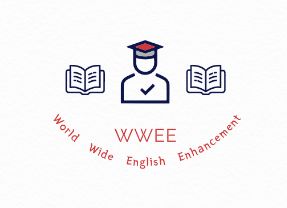
Critical Thinking Exercise: Questions and Answers | NEB Class 12 English
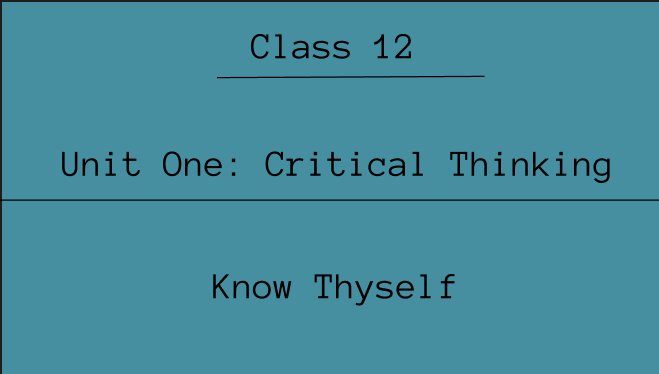
December 28, 2021 August 2, 2023 Admin
Know Thyself
Working with words, a. find the words from the text that match with the following meanings., a. shuffling = walking by dragging one’s feet along or without lifting them fully from the ground, b. doodling = drawing pictures or patterns while thinking about something else, c. plaque = a piece of flat metal with writing on it, d. percept = a general rule intended to regulate behavior or thought, e. sneak = move or go in a furtive or stealthy way, b. consult your teacher and define the following thinking skills., a. convergent thinking = in convergence thinking, the answer to an issue may be derived by using established principles and logical reasoning. solving a problem within the context of existing knowledge and refining the answer based on logical inference is what this kind of reasoning entails. variety of tests, such as multiple choice tests, standardized tests, quizzes, spelling tests and similar other tests require convergent thinking, because only one answer can be 100% correct. a convergent thinker would only regard a person be either sick or healthy., b. divergent thinking = divergent thinking is a way of thinking that involves examining many options. it is a creative way of finding the solution of a problem., c. critical thinking = critical thinking is the intellectually disciplined process by which knowledge collected from or produced via, observation, experience, contemplation, reasoning, or communication is actively and skillfully conceptualized, applied, analyzed, summarized or evaluated, as a guide to faith and action., d. creative thinking = creative thinking is a talent that allows you to look at things in a new way and from various perspectives. it is an innovative style of thinking that leads to unexpected findings and fresh ways of doing things. creative thinking may be helped to create ideas through brainstorming or lateral thinking., comprehension, answer the following questions., a. who was jack how did he make children laugh ans : jack was a friendly and kind-hearted kid who used to make laugh childrens by cracking jokes and riddles., b. why are “sharks” important to reid ans : sharks are important to reid because they help to keep ocean clean by eating dead organisms., c. what does mr. browne think about the most important thing ans : mr. browne thinks that the most important thing is to know ownself, or own character’s and evaluate them to bring the best version of someone., d. what is that has not been noticed by the student ans : “the message in the notice board of the school entrance gate” that writes “know thyself” was the thing that has not been noticed by any student., e. how did jack make fun of the english class ans : jack made fun of the english class by answering sarcastically the teacher’s question of “why are you here”. he answers in a funny way that they were there to attend english class while the answer was sensitive., f. what were the students going to do at the end of the month ans : students were going to submit the essay on the basis of the precepts that the teacher writes as “mr. brownie’s precepts”., g. what particular act of students surprised a girl student ans : students used to come up with their very own personal precept, write it on a postcard, and mail it to mr. brownie after their graduation, this thing surprised the girl student., critical thinking, a. have you made your own precept after you read this lesson what is it share it with your friends. ans : precept is a rule or principle that we make to conduct our behavior on the accordance of that. i also had many precepts even before reading this lesson. the major precepts of my life are:.
- Anything that happens, happens for good
- Always stay Positive
- What we are today is the result the choices we made yesterday, so we have to make choices wisely
- Believe in Karma rather than fate
These some of the precepts which I don’t only think are ideal but also try to ideally follow it in my daily behaviors.
B. according to josh lanyon, “if there was one life skill everyone on the planet needed, it was the ability to think with critical objectivity”. justify this statement with your logic. ans : critical thinking is the biggest blessing that everyone wants. if someone has the skill to think creatively, he/she is sure to get name/fame and money. creativeness brings the most out of someone. it brings newness, uniqueness and better ideas. from handling any situations skillfully, communicate with people in a logical manner, to writing books, stories that everyone likes and interested in, creativity is the one that matters., josh lanyon has said this very finest quote which i personally liked very much. creativity enables us to more freely and innovatively examine and resolve issues. creativity expands up your thinking. a civilization that has lost touch with its creative side is a society in which generations may be closed. it expands our prospects any may assist us to overcome obstacles., question tag, b. rewrite the following sentences adding appropriate question tag., a. gill does not know ann, does he, b. i’m very patient, aren’t i, c. they’d never met me before, had they, d. listen carefully, will you, e. let’s have a break, shall you, f. let us invite them, shall we, g. hari used to live in france as a boy, didn’t he, h. you’d better not take a hard drink, had you, i. sheep eat grass, don’t they, j. mr. pande can speak nine languages, can’t he, k. she’s finished her classes, hasn’t she, l. she barely managed to reach the goal, did she, m. don’t let him swim in that pond, will you, n. there are lots of people here, aren’t there, c. read the following situations. what do you say in these situations use question tags. , a. the sky is full of cloud. you can see lightening and hear thunder. ans : it’s going to rain soon, isn’t it, b. you want to pay the taxi fare but you are short by 100 rupees. ans : shyam, you have to lend me rs. 100, haven’t you, c. you have met a stranger at a party and you want to have chat with him/her. ans : we will talk later, won’t we, d. you came out of the film hall with your friend. you enjoyed the film. ans : the film was very enjoyable, wasn’t it, e. you and your friend listened to a comedian on the stage and felt spellbound by his/her performance. ans : he gave an excellent presentation, didn’t he, f. you think your friend’s father has arrived from the us but you are not sure. ans : your father has not arrived from us, has he, g. you think susan will join the new job tomorrow but you are not sure. ans : susan will go to her new job tomorrow, won’t she, h. your friend’s hair looks too short. ans : you have got too short hair, haven’t you, i. you want to go for a picnic with your friends in class. ans : let’s go to picnic, shall we, j. you want permission from your father to go for a walk. ans : let me go for a evening walk, will you, about the author.
Related posts
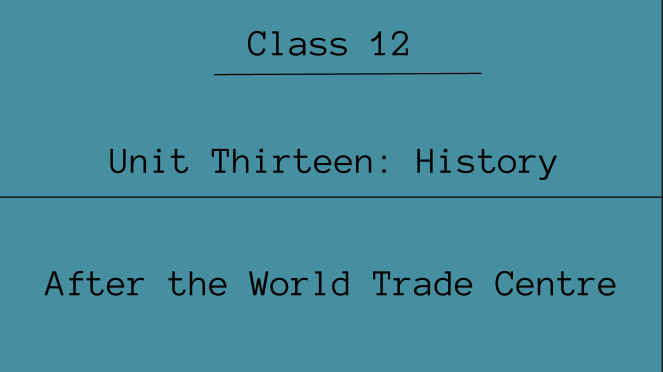
History Exercise: Questions and Answers | NEB Class 12 English

Sports Exercise: Questions and Answers | NEB Class 12 English

Ecology and Environment Exercise: Questions and Answers | NEB Class 12 English
Leave a reply cancel reply.
Your email address will not be published. Required fields are marked *
Save my name, email, and website in this browser for the next time I comment.
Critical thinking definition

Critical thinking, as described by Oxford Languages, is the objective analysis and evaluation of an issue in order to form a judgement.
Active and skillful approach, evaluation, assessment, synthesis, and/or evaluation of information obtained from, or made by, observation, knowledge, reflection, acumen or conversation, as a guide to belief and action, requires the critical thinking process, which is why it's often used in education and academics.
Some even may view it as a backbone of modern thought.
However, it's a skill, and skills must be trained and encouraged to be used at its full potential.
People turn up to various approaches in improving their critical thinking, like:
- Developing technical and problem-solving skills
- Engaging in more active listening
- Actively questioning their assumptions and beliefs
- Seeking out more diversity of thought
- Opening up their curiosity in an intellectual way etc.
Is critical thinking useful in writing?
Critical thinking can help in planning your paper and making it more concise, but it's not obvious at first. We carefully pinpointed some the questions you should ask yourself when boosting critical thinking in writing:
- What information should be included?
- Which information resources should the author look to?
- What degree of technical knowledge should the report assume its audience has?
- What is the most effective way to show information?
- How should the report be organized?
- How should it be designed?
- What tone and level of language difficulty should the document have?
Usage of critical thinking comes down not only to the outline of your paper, it also begs the question: How can we use critical thinking solving problems in our writing's topic?
Let's say, you have a Powerpoint on how critical thinking can reduce poverty in the United States. You'll primarily have to define critical thinking for the viewers, as well as use a lot of critical thinking questions and synonyms to get them to be familiar with your methods and start the thinking process behind it.
Are there any services that can help me use more critical thinking?
We understand that it's difficult to learn how to use critical thinking more effectively in just one article, but our service is here to help.
We are a team specializing in writing essays and other assignments for college students and all other types of customers who need a helping hand in its making. We cover a great range of topics, offer perfect quality work, always deliver on time and aim to leave our customers completely satisfied with what they ordered.
The ordering process is fully online, and it goes as follows:
- Select the topic and the deadline of your essay.
- Provide us with any details, requirements, statements that should be emphasized or particular parts of the essay writing process you struggle with.
- Leave the email address, where your completed order will be sent to.
- Select your prefered payment type, sit back and relax!
With lots of experience on the market, professionally degreed essay writers , online 24/7 customer support and incredibly low prices, you won't find a service offering a better deal than ours.
Educationise
11 Activities That Promote Critical Thinking In The Class
52 Critical Thinking Flashcards for Problem Solving
Critical thinking activities encourage individuals to analyze, evaluate, and synthesize information to develop informed opinions and make reasoned decisions. Engaging in such exercises cultivates intellectual agility, fostering a deeper understanding of complex issues and honing problem-solving skills for navigating an increasingly intricate world. Through critical thinking, individuals empower themselves to challenge assumptions, uncover biases, and constructively contribute to discourse, thereby enriching both personal growth and societal progress.
Critical thinking serves as the cornerstone of effective problem-solving, enabling individuals to dissect challenges, explore diverse perspectives, and devise innovative solutions grounded in logic and evidence. For engaging problem solving activities, read our article problem solving activities that enhance student’s interest.
What is Critical Thinking?
Critical thinking is a 21st-century skill that enables a person to think rationally and logically in order to reach a plausible conclusion. A critical thinker assesses facts and figures and data objectively and determines what to believe and what not to believe. Critical thinking skills empower a person to decipher complex problems and make impartial and better decisions based on effective information.
More Articles from Educationise
- 10 Innovative Strategies for Promoting Critical Thinking in the Classroom
- How to Foster Critical Thinking Skills in Students? Creative Strategies and Real-World Examples
- 9 Must-Have AI Tools for Teachers to Create Interactive Learning Materials
- The Future of Education: 8 Predictions for the Next Decade
- The Latest in EdTech: 5 Innovative Tools and Technologies for the Classroom
- 8 Free Math Problem Solving Websites and Applications
Critical thinking skills cultivate habits of mind such as strategic thinking, skepticism, discerning fallacy from the facts, asking good questions and probing deep into the issues to find the truth.
Importance of Acquiring Critical Thinking Skills
Acquiring critical thinking skills was never as valuable as it is today because of the prevalence of the modern knowledge economy. Today, information and technology are the driving forces behind the global economy. To keep pace with ever-changing technology and new inventions, one has to be flexible enough to embrace changes swiftly.
Read our article: How to Foster Critical Thinking Skills in Students? Creative Strategies and Real-World Examples
Today critical thinking skills are one of the most sought-after skills by the companies. In fact, critical thinking skills are paramount not only for active learning and academic achievement but also for the professional career of the students. The lack of critical thinking skills catalyzes memorization of the topics without a deeper insight, egocentrism, closed-mindedness, reduced student interest in the classroom and not being able to make timely and better decisions.
Benefits of Critical Thinking Skills in Education
Certain strategies are more eloquent than others in teaching students how to think critically. Encouraging critical thinking in the class is indispensable for the learning and growth of the students. In this way, we can raise a generation of innovators and thinkers rather than followers. Some of the benefits offered by thinking critically in the classroom are given below:
- It allows a student to decipher problems and think through the situations in a disciplined and systematic manner
- Through a critical thinking ability, a student can comprehend the logical correlation between distinct ideas
- The student is able to rethink and re-justify his beliefs and ideas based on facts and figures
- Critical thinking skills make the students curious about things around them
- A student who is a critical thinker is creative and always strives to come up with out of the box solutions to intricate problems
- Critical thinking skills assist in the enhanced student learning experience in the classroom and prepares the students for lifelong learning and success
- The critical thinking process is the foundation of new discoveries and inventions in the world of science and technology
- The ability to think critically allows the students to think intellectually and enhances their presentation skills, hence they can convey their ideas and thoughts in a logical and convincing manner
- Critical thinking skills make students a terrific communicator because they have logical reasons behind their ideas
Critical Thinking Lessons and Activities
11 Activities that Promote Critical Thinking in the Class
We have compiled a list of 11 activities that will facilitate you to promote critical thinking abilities in the students. We have also covered problem solving activities that enhance student’s interest in our another article. Click here to read it.
1. Worst Case Scenario
Divide students into teams and introduce each team with a hypothetical challenging scenario. Allocate minimum resources and time to each team and ask them to reach a viable conclusion using those resources. The scenarios can include situations like stranded on an island or stuck in a forest. Students will come up with creative solutions to come out from the imaginary problematic situation they are encountering. Besides encouraging students to think critically, this activity will enhance teamwork, communication and problem-solving skills of the students.
Read our article: 10 Innovative Strategies for Promoting Critical Thinking in the Classroom
2. If You Build It
It is a very flexible game that allows students to think creatively. To start this activity, divide students into groups. Give each group a limited amount of resources such as pipe cleaners, blocks, and marshmallows etc. Every group is supposed to use these resources and construct a certain item such as building, tower or a bridge in a limited time. You can use a variety of materials in the classroom to challenge the students. This activity is helpful in promoting teamwork and creative skills among the students.
It is also one of the classics which can be used in the classroom to encourage critical thinking. Print pictures of objects, animals or concepts and start by telling a unique story about the printed picture. The next student is supposed to continue the story and pass the picture to the other student and so on.
4. Keeping it Real
In this activity, you can ask students to identify a real-world problem in their schools, community or city. After the problem is recognized, students should work in teams to come up with the best possible outcome of that problem.
5. Save the Egg
Make groups of three or four in the class. Ask them to drop an egg from a certain height and think of creative ideas to save the egg from breaking. Students can come up with diverse ideas to conserve the egg like a soft-landing material or any other device. Remember that this activity can get chaotic, so select the area in the school that can be cleaned easily afterward and where there are no chances of damaging the school property.
6. Start a Debate
In this activity, the teacher can act as a facilitator and spark an interesting conversation in the class on any given topic. Give a small introductory speech on an open-ended topic. The topic can be related to current affairs, technological development or a new discovery in the field of science. Encourage students to participate in the debate by expressing their views and ideas on the topic. Conclude the debate with a viable solution or fresh ideas generated during the activity through brainstorming.
7. Create and Invent
This project-based learning activity is best for teaching in the engineering class. Divide students into groups. Present a problem to the students and ask them to build a model or simulate a product using computer animations or graphics that will solve the problem. After students are done with building models, each group is supposed to explain their proposed product to the rest of the class. The primary objective of this activity is to promote creative thinking and problem-solving skills among the students.
8. Select from Alternatives
This activity can be used in computer science, engineering or any of the STEM (Science, Technology, Engineering, Mathematics) classes. Introduce a variety of alternatives such as different formulas for solving the same problem, different computer codes, product designs or distinct explanations of the same topic.
Form groups in the class and ask them to select the best alternative. Each group will then explain its chosen alternative to the rest of the class with reasonable justification of its preference. During the process, the rest of the class can participate by asking questions from the group. This activity is very helpful in nurturing logical thinking and analytical skills among the students.
9. Reading and Critiquing
Present an article from a journal related to any topic that you are teaching. Ask the students to read the article critically and evaluate strengths and weaknesses in the article. Students can write about what they think about the article, any misleading statement or biases of the author and critique it by using their own judgments.
In this way, students can challenge the fallacies and rationality of judgments in the article. Hence, they can use their own thinking to come up with novel ideas pertaining to the topic.
10. Think Pair Share
In this activity, students will come up with their own questions. Make pairs or groups in the class and ask the students to discuss the questions together. The activity will be useful if the teacher gives students a topic on which the question should be based.
For example, if the teacher is teaching biology, the questions of the students can be based on reverse osmosis, human heart, respiratory system and so on. This activity drives student engagement and supports higher-order thinking skills among students.
11. Big Paper – Silent Conversation
Silence is a great way to slow down thinking and promote deep reflection on any subject. Present a driving question to the students and divide them into groups. The students will discuss the question with their teammates and brainstorm their ideas on a big paper. After reflection and discussion, students can write their findings in silence. This is a great learning activity for students who are introverts and love to ruminate silently rather than thinking aloud.
Read our next article: 10 Innovative Strategies for Promoting Critical Thinking in the Classroom
Share this:
3 thoughts on “ 11 activities that promote critical thinking in the class ”.
- Pingback: What is Growth Mindset? 50+ Motivational Quotes on Growth Mindset - Educationise
- Pingback: 6 Steps To Implement Project-Based Learning In The Classroom - Educationise
- Pingback: Engaging Problem-Solving Activities That Spark Student Interest - Educationise
Leave a Reply Cancel reply
Discover more from educationise.
Subscribe now to keep reading and get access to the full archive.
Type your email…
Continue reading

- Productivity
- Thoughtful learning
Become a better critical thinker with these 7 critical thinking exercises
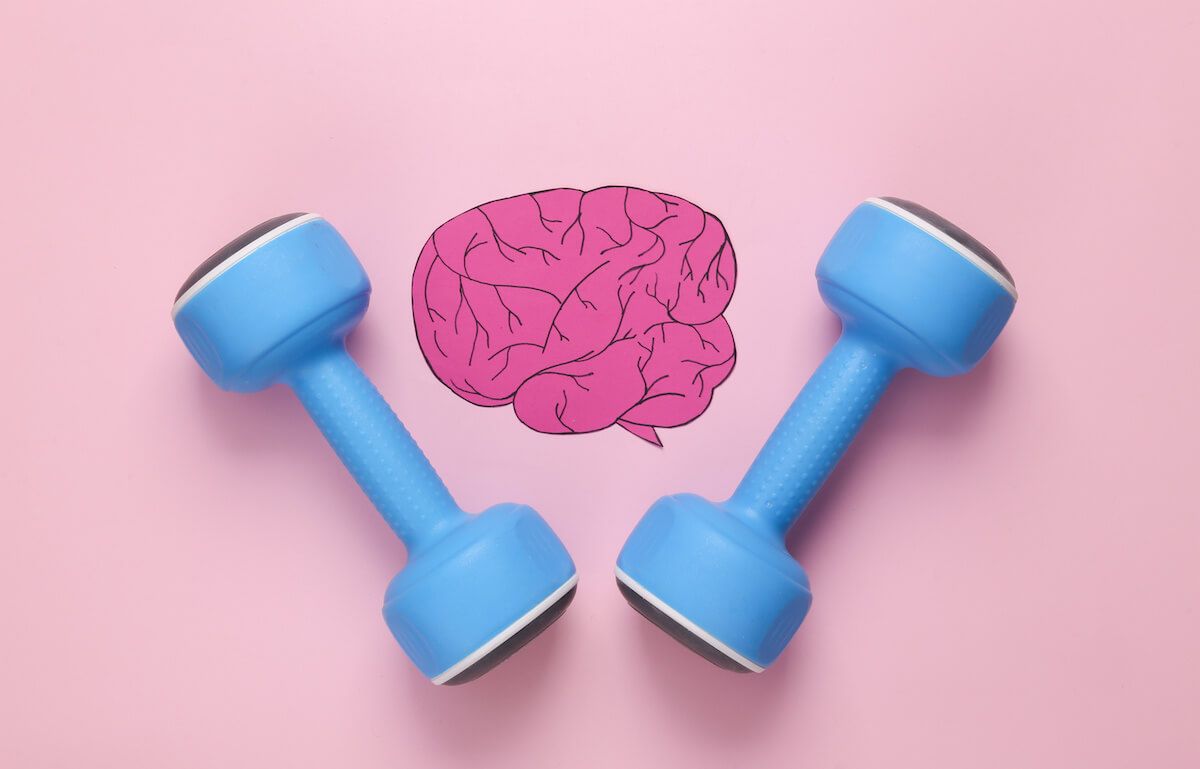
Critical thinking is a skill you can use in any situation. Whether you're a student, entrepreneur, or business executive, critical thinking can help you make better decisions and solve problems.
But learning critical thinking skills isn't always an easy task. Many tools, techniques, and strategies are available, and choosing the right one can be challenging. Vague suggestions on the internet like "read more" aren't very helpful, and elaborate business examples don’t apply to many of us.
As average problem-solvers, we need actionable thinking exercises to improve our critical thinking skills and enhance our thinking processes. Regularly performing exercises that specifically stretch our decision-making and reasoning skills is the most effective method of improving our thinking abilities.
This article will explore several exercises that will help you develop critical thinking skills. Whether you are preparing for an exam, making an influential decision for your business, or going about your daily life, these fun activities can build your reasoning skills and creative problem-solving abilities.
Boost your logical thinking skills and start practicing a critical mindset with these 10 critical thinking exercises.
A Quick Look at Critical Thinking
As a thoughtful learner, you likely already understand the basics of critical thinking, but here's a quick refresher.
Critical thinking involves analyzing problems or issues objectively and rationally. Critical thinkers are able to understand their own biases and assumptions, as well as those of others. They’re also able to see the world from a different point of view and understand how their experiences impact their thinking.
Developing critical thinking skills is essential because it allows us to see things from multiple perspectives, identify biases and errors in reasoning, and be open to possible solutions. Making informed decisions is easier when we have a better understanding of the world around us.
Why We Need to Practice Critical Thinking

We aren't born with critical thinking skills, and they don’t naturally develop beyond survival-level thinking. To master critical thinking, we must practice it and develop it over time.
However, learning to think critically isn't as easy as learning to ride a bicycle. There aren't any step-by-step procedures to follow or supportive guides to fall back on, and it is not taught in public schools consistently or reliably. To ensure students' success, teachers must know higher-order thinking skills (HOTS) and how to teach them, research says.
Unfortunately, although teachers understand the importance of HOTS and attempt to teach it, studies show that their capacity to measure students' HOTS is low. Educator and author Dr. Kulvarn Atwal says, "It seems that we are becoming successful at producing students who are able to jump through hoops and pass tests."
As critical thinking skills become more important in higher grades, some students find it challenging to understand the concept of critical thinking. To develop necessary thinking skills, we must set aside our assumptions and beliefs. This allows us to explore and question topics from a "blank page" point of view and distinguish fact from opinion.
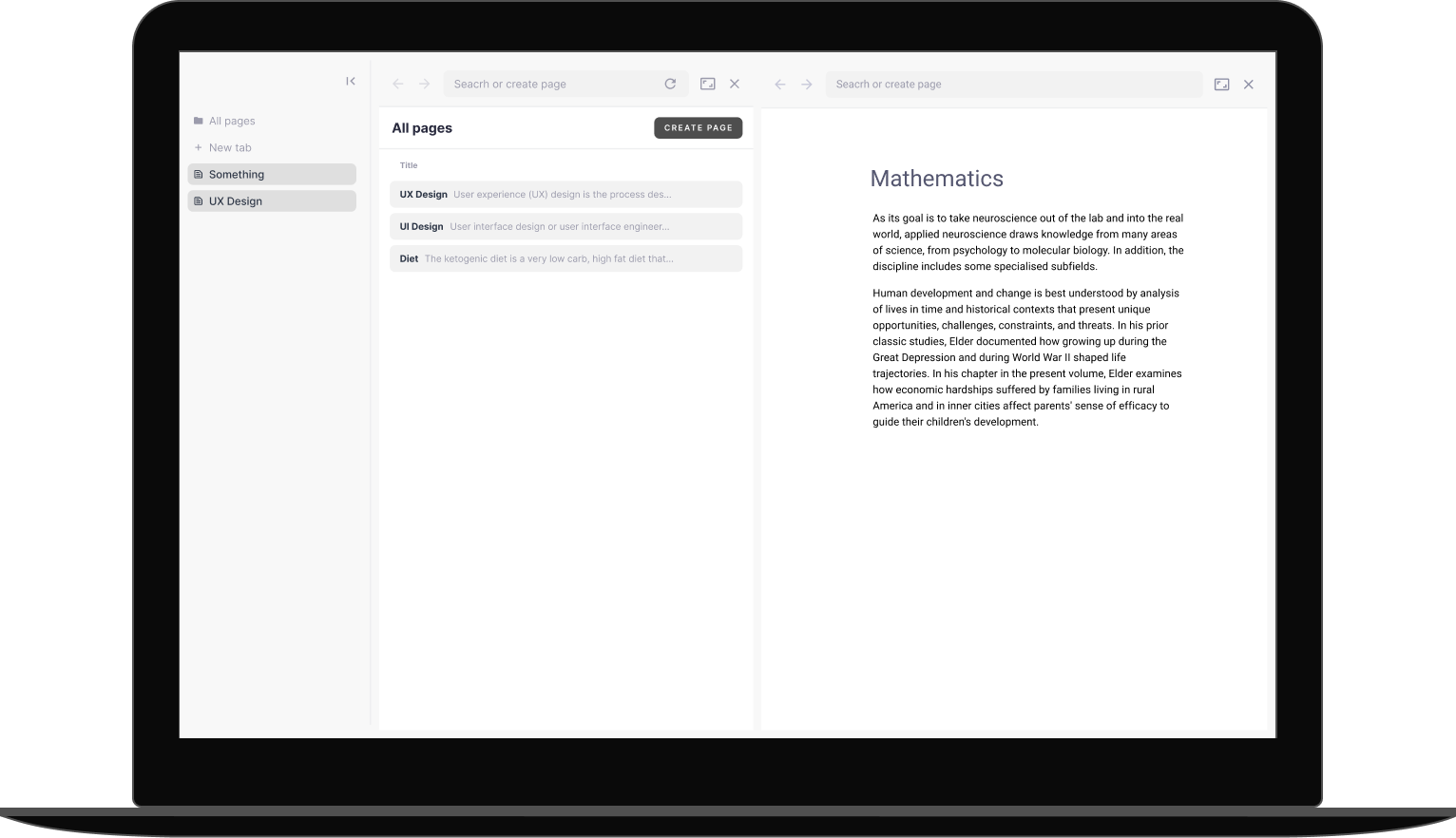
Be the first to try it out!
We're developing ABLE, a powerful tool for building your personal knowledge, capturing information from the web, conducting research, taking notes, and writing content.
7 Critical Thinking Exercises To Improve Your Critical Thinking Skills

The good news is that by assessing, analyzing, and evaluating our thought processes, we can improve our skills. Critical thinking exercises are key to this improvement. Our critical thinking builds and improves with regular practice, just like a muscle that gets stronger with use.
If you want to become a better critical thinker , here are some critical thinking exercises to try:
Exercise #1: The Ladder of Inference
You can exercise your critical thinking skills by using the Ladder of Inference model . This thinking model was developed by renowned organizational psychologist Chris Argyris. Each rung on the ladder of inference represents a step you take to arrive at your conclusions.
The decision-making process starts when we are faced with a problem or situation. As soon as we observe something problematic or important, we presume what is causing it, and then we use that assumption to draw conclusions. Based on those conclusions, we take action.
For example, say you're at a party and see a friend across the room. You catch their eye and wave, but they turn and walk away. Using the ladder, you might climb the rungs as follows:
- Observe that your friend walked away.
- Select a few details of the situation, including your wave and your assumption that they saw you.
- Meaning is attached based on the environment, making you think your friend must have other people to talk to at the party.
- Assumptions are made based on that meaning, assuming that means your friend doesn’t like you as much as them.
- Conclusions are drawn from the assumption, and you determine that your friend must be mad at you or doesn't want you to be at the party.
- Beliefs are formed, making you think you're not welcome.
- Action is taken, and you leave the party.
In this example, you started with a situation (someone walking away at a crowded party) and made a series of inferences to arrive at a conclusion (that the person is mad at you and doesn't want you there).
The Ladder of Inference can be a helpful tool to frame your thinking because it encourages you to examine each step of your thought process and avoid jumping to conclusions. It's easy to make assumptions without realizing it, as in this scene. Perhaps your friend never even saw you wave from across the crowded room.
Exercise #2: The Five Whys
The "Five Whys" technique is an analytical skill that can help you uncover the source of a problem. The activity was created by Sakichi Toyoda, the founder of Toyota, and consists of repeatedly asking “why?” when a problem is encountered to determine its root cause.
This exercise can be difficult because knowing if you've discovered the source of your problem is challenging. The "five" in "Five Whys" is just a guideline — you may need to ask more. When you can't ask anything else, and your response is related to the original issue, you've probably arrived at the end.
Even if you need several rounds of questioning, just keep going. The important part that helps you practice critical thinking is the process of asking "why?" and uncovering the deeper issues affecting the situation.
For instance, say you're trying to figure out why your computer keeps crashing.
- You ask " why ," and the answer is that there's a software problem.
- Why? Because the computer keeps running out of memory.
- Why? Because too many programs are running at the same time.
- Why? Because too many browser tabs are open .
- Why? Because multitasking is fragmenting your focus, you're doing too many things at once.
In this example, working through the "why's" revealed the underlying cause. As a result, you can find the best solution, which is concentrating on just one thing at a time.
Exercise #3: Inversion

Inversion is another critical thinking exercise that you can use in any situation. Inversion is sort of like taking on the role of the devil's advocate. In this exercise, adopt the opposite view of whatever issue you're exploring and consider the potential arguments for that side. This will help broaden your critical thinking skills and enable you to see other perspectives on a situation or topic more clearly.
For example, let's say you're thinking about starting your own business. Using inversion, you would explore all of the potential arguments for why starting your own business is bad. This might include concerns like:
- You could end up in debt.
- The business might fail.
- It's a lot of work.
- You might not have time for anything else.
By exploring these potentially adverse outcomes, you can identify the potential risks involved in starting your own business and make a more sound decision. You might realize that now is not the right time for you to become an entrepreneur. And if you do start the company, you'll be better prepared to deal with the issues you identified when they occur.
Exercise #4: Argument Mapping
Argument mapping can be a beneficial exercise for enhancing critical thinking skills. Like mind mapping, argument mapping is a method of visually representing an argument's structure. It helps analyze and evaluate ideas as well as develop new ones.
In critical thinking textbooks, argument diagramming is often presented to introduce students to argument constructions. It can be an effective way to build mental templates or schema for argument structures, which researchers think may make critical evaluation easier .
Argument maps typically include the following:
- Conclusion: What is being argued for or against
- Premises: The reasons given to support the conclusion
- Inferences: The connections made between the premises and conclusion
The argument map should be as clear and concise as possible, with a single word or phrase representing each element. This will help you make connections more easily. After the map is completed, you can use it to identify any weak points in the argument. If any areas aren't well-supported, additional premises can be added.
Argument mapping can be applied to any situation that requires critical thinking skills. The more time you take to map out an argument, the better you'll understand how the pieces fit together. Ultimately, this will help you think more creatively and critically, and make more informed decisions.
Exercise #5: Opinion vs. Fact
Critical thinking activities that focus on opinions and facts are particularly valuable and relevant new learning opportunities. Our constantly-connected world makes it easy to confuse opinions and facts , especially with sensationalist news articles and click-bait headlines.
How can you tell a fact from an opinion? Facts are generally objective and established, whereas opinions are subjective and unproven. For example, "the cloud is in the air" is a fact. "That dress looks good on you" is an opinion.
Practice your critical thinking skills by reading or listening to the news. See if you can identify when someone is stating an opinion rather than a fact. Ask yourself the following questions:
- Who is saying what? What reasons might be behind their statements?
- Does the claim make sense? Who would disagree with it and why?
- How can you tell if the data is reliable? Can it be fact-checked? Has it been shared by other credible publishers?
- How do you know whether or not the presenter is biased? What kind of language is being used?
This powerful exercise can train your mind to start asking questions whenever presented with a new claim. This will help you think critically about the information you're taking in and question what you're hearing before accepting it as truth.
Exercise #6: Autonomy of an Object
In her book " The Critical Thinking Tool Kit ," Dr. Marlene Caroselli describes a critical thinking exercise called "Living Problems, Lively Solutions." This exercise uses the autonomy of an object as a problem-solving tool to find a possible solution.
To do this, you'll personify your problem and place it in another context — a different time or place. This allows you to uncover unique solutions to the problem that might be tied to your mental associations with that setting.
For example, if your problem is poor time management , you might personify the issue as a thief of your time. The idea of a thief could make you think of jail, which might prompt thoughts of locking up specific distractions in your life. The idea of jail could also make you think of guards and lead you to the possible solution of checking in with an accountability buddy who can make sure you're sticking to your schedule.
The autonomy-of-object technique works because it stimulates thoughts you wouldn’t have considered without the particular context in which you place the problem.
Exercise #7: The Six Thinking Hats

Designed by Edward de Bono, the Six Thinking Hats is a critical thinking exercise that was created as a tool for groups to use when exploring different perspectives on an issue. When people use other thinking processes, meetings can become challenging rather than beneficial.
To help teams work more productively and mindfully, de Bono suggests dividing up different styles of thinking into six categories, represented as hats:
- The white hat is objective and focuses on facts and logic
- The red hat is intuitive, focusing on emotion and instinct
- The black hat is cautious and predicts negative outcomes
- The yellow hat is optimistic and encourages positive outcomes
- The green hat is creative, with numerous ideas and little criticism
- The blue hat is the control hat used for management and organization
With each team member wearing a different hat, a group can examine an issue or problem from many different angles, preventing one viewpoint (or individual) from dominating the meeting or discussion. This means that decisions and solutions reached using the Six Thinking Hats approach will likely be more robust and effective, and everyone’s creative thinking skills will benefit.
Train Your Brain With Critical Thinking Exercises
Using critical thinking regularly in various situations can improve our ability to evaluate and analyze information. These seven critical thinking exercises train your brain for better critical thinking skills . With daily practice, they can become habits that will help you think more critically each day.
Improve your critical thinking with ABLE
Ask better questions and get better answers with ABLEs integrated web search, annotation and note-taking features. Check how ABLE helps you to improve your critical thinking.
I hope you have enjoyed reading this article. Feel free to share, recommend and connect 🙏
Connect with me on Twitter 👉 https://twitter.com/iamborisv
And follow Able's journey on Twitter: https://twitter.com/meet_able
And subscribe to our newsletter to read more valuable articles before it gets published on our blog.
Now we're building a Discord community of like-minded people, and we would be honoured and delighted to see you there.
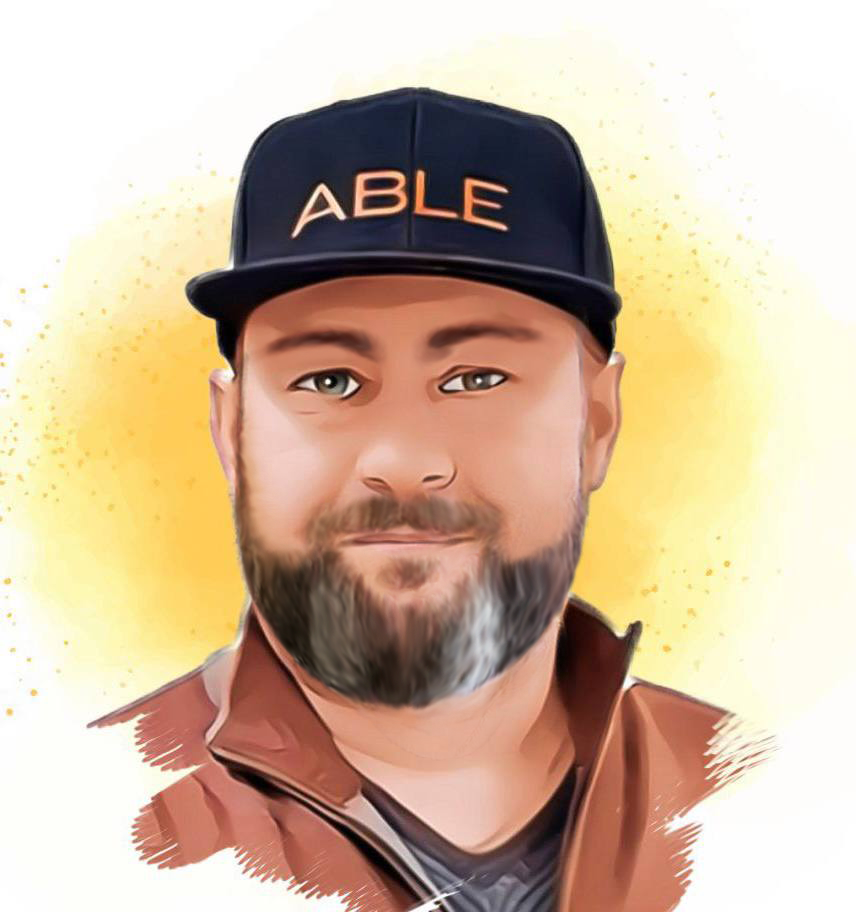
Straight from the ABLE team: how we work and what we build. Thoughts, learnings, notes, experiences and what really matters.
Read more posts by this author
follow me :
Mental models: 13 thinking tools to boost your problem-solving skills
7 note-taking strategies to improve your study skills.
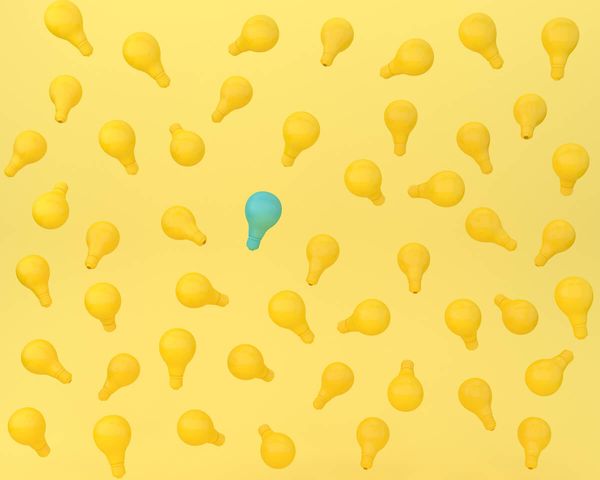
What is abstract thinking? 10 activities to improve your abstract thinking skills
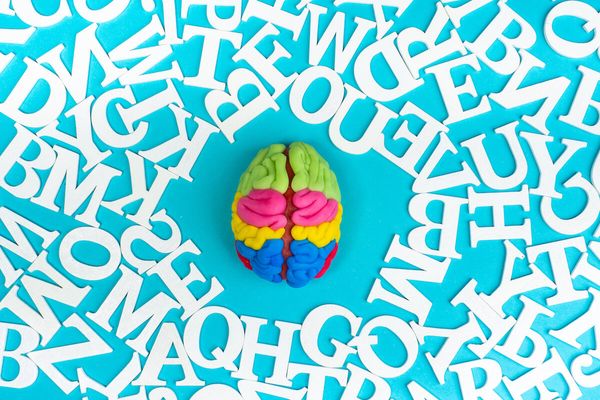
5 examples of cognitive learning theory (and how you can use them)
0 results found.
- Aegis Alpha SA
- We build in public
Building with passion in

Hobbies Exercise : Question Answers and Grammar
Share this article, working with words, a. find the words from the text which have the following meanings., b. find the meaning of the following words from a dictionary..
You can download our android app using below button to get offline access to the notes directly from your phone.

Comprehension
Answer the following questions., a. what is the author’s favourite hobby why does she like it so much, b. what sorts of roads did the writer prefer to walk on when she was very young, c. how did walking give the author and her classmates a sense of freedom, d. in what ways were the roads in kathmandu different from the ones in sydney, e. how did walking help the author in the new country, f. what were the treasures of petersham, where the writer lived with her family, g. what things became her permanent friends with whom she could share her feelings, h. why did she feel that she had travelled to ‘a desert, to emptiness’ as she went to the united states, i. why did the author eventually feel that the strange city was known to her, j. how did walking make her feel at home with different places she visited, critical thinking, a. do you believe that walking helps us understand ourselves give reasons in support of your opinion., b. think of one of your hobbies. how does this hobby relate to your psyche and self, c. many people turn their hobbies into careers. is it good to turn one’s hobby into a career, a. highlighting the advantages of walking, henry david thoreau says, “an early morning walk is a blessing for the whole day.” write an essay on the advantages of morning walk..
Advantages of morning walk
B. Change the following sentences into passive voice.
A. i want someone to love me., b. someone broke into our house while we were on holiday., c. i don’t like people staring at me., d. is it true that someone stole your car, e. the cat enjoys someone tickling him., f. would swostika open the window, g. did they confess the crime, h. he thinks that someone is teaching jennie., i. sabina hates people laughing at her., c. complete the following sentences as in the example., a. english people think that the number thirteen is unlucky., b. what are you wearing for the wedding, c. the carpet in our drawing room is very dirty., d. there are rumours that the factory at the corner is manufacturing bombs., e. some people believe that silajit from jumla cures all indigestion problems., f. people claim that changu narayan temple is the oldest temple in nepal., h. the police suspect that the criminal left the country., j. people allege that the corrupt leader has embezzled millions of rupees., don't miss our nepali guide.
Moreover, If you have any doubt, suggestions or feedback about our services, then please feel free to contact us. You can contact us from the Contact Page . We will be happy to read your feedback and suggestions.
Additionally, You can also check our Privacy Policy page if you want to know how we may use your data generated from visiting this website.

COMMENTS
a. Convergent thinking Convergent thinking is the type of thinking that focuses on coming up with the single, well-established answer to a problem. It is oriented toward deriving the single best, or most often correct answer to a question. b. Divergent thinking Divergent thinking is a thought process or method used to generate creative ideas by ...
Critical Thinking Class 12 Exercise : All Question Answers with Grammar from class 12 English Book Chapter 1 know Thyself along with Free PDF Download link of the notes is provided in this article. Exercise. Working with words. A. Find the words from the text that match with the following meanings.
Unit 1 - Critical Thinking | All Exercises | Compulsory English Class 12. A. Find the words from the text that match with the following meanings. a. walking by dragging one's feet along or without lifting. them fully from the ground - Shuffling. b. drawing pictures or patterns while thinking about.
Class 12 English Chapter 1 Critical Thinking (Know Thyself) Exercise & Summary with Free PDFPDF Link - https://www.tsz.com.np/2021/08/class-12-english-book-c...
Continuous Learning: A continual learning and adaptive mindset is fostered by critical objectivity. Critical thinkers are more willing to challenge preconceived notions, investigate novel concepts, and broaden their knowledge. This flexibility is essential in a world where conditions and knowledge are ever-changing. 7.
Class 12 English Notes, Class 12 English Guide, Class 12 English Solution has all Exercise questions answers, summary and solution with PDF. ... Exercise; 1. Critical Thinking: Notes: 2. Family: Notes: 3. Sports Euro 2020 ... This set of notes is meant to help you understand each chapter well and help you answer questions from the book. It has ...
Critical thinking skills refer to a type of thinking skill that is applied to generate ideas for the solution of problems. This skill is directly related to the mind and logic. This skill is an intellectually disciplined process of mind and is considered a broad concept to analyse something or somebody actively and skillfully in various aspects.
Working with words A. Find the words from the text that match with the following meanings. a. Shuffle - walking by dragging one's feet along or without lifting them fully from the ground b. Doodle - drawing pictures or patterns while thinking about something else c. Plaque - a piece of flat metal with writing on it d. Precepts - a general rule intended to regulate behavior or thought e.
In this video, I will be teaching you class 12 english book chapter 1 which has the unit name 'critical thinking' and the name of chapter is 'Know Thyself'. ...
Here is the solution of the exercises of Know Thyself, class 12 English, unit 1 with the complete explanation. ... c. Critical thinking . Critical thinking is the process in which knowledge based on observation, experience, contemplation, reasoning, or communication is actively and skilfully conceptualized, applied, analyzed, summarized, or ...
Unit 1: Critical Thinking all notes for comprehension, writing, critical thinking, grammar, speaking, project work and more for class 12 english NEB.
Unit: 1 Critical thinking grammar. In this unit, the grammar that students will face is 'Question tag'. Here, I will be sharing the complete grammar solution of critical thinking chapter. Question tag. A. Study the following examples:
Unit 1: Critical Thinking Solution (Know Thyself) Working with words. A. Find the words from the text that match with the following meanings. a. Shuffle - walking by dragging one's feet along or without lifting them fully from the ground b. Doodle - drawing pictures or patterns while thinking about something else
English Class 12. Solution of English subject of class twelve. It includes Working with words, comprehension, critical thinking, writing, and grammar of all chapters. 1.
Critical Thinking Exercise 1: Tour Guide for an Alien. This exercise provides an opportunity to think outside your normal way of thinking. Pretend that you have been assigned the task of conducting a tour for aliens who are visiting the earth and observing human life. You're riding along in a blimp, viewing the landscape below, and you float ...
Working with Words A. Find the words from the text that match with the following meanings. a. Shuffling = walking by dragging one's feet along or without lifting them fully from the ground b. Doodling = drawing pictures or patterns while thinking about something else c. Plaque = a piece of flat metal with writing on it d. Percept = a general rule intended to regulate behavior or thought
Share this article. NEB Plus 2 Notes provides comprehensive study material for the Class 12th English syllabus. It follows the newly prescribed syllabus of NEB and supports the students in revising the texts completely. It covers the solutions to the English books prescribed by the NEB, which are, First Flight and Footprints without Feet.
Critical thinking, as described by Oxford Languages, is the objective analysis and evaluation of an issue in order to form a judgement. Active and skillful approach, evaluation, assessment, synthesis, and/or evaluation of information obtained from, or made by, observation, knowledge, reflection, acumen or conversation, as a guide to belief and action, requires the critical thinking process ...
6. Start a Debate. In this activity, the teacher can act as a facilitator and spark an interesting conversation in the class on any given topic. Give a small introductory speech on an open-ended topic. The topic can be related to current affairs, technological development or a new discovery in the field of science.
b. The weather was extremely bad. The pilot landed the plane safely. - In spite of extremely bad weather, the pilot landed the plane safely. - Although the weather was extremely bad, the pilot landed the plane safely. c. We study in the same college. We hardly see each other.
Exercise #1: The Ladder of Inference. You can exercise your critical thinking skills by using the Ladder of Inference model. This thinking model was developed by renowned organizational psychologist Chris Argyris. Each rung on the ladder of inference represents a step you take to arrive at your conclusions.
b. to make or do something again exactly in the same way. replicate. c. decayed, deteriorated, or fallen into partial ruin especially through neglect or misuse. dilapidated. d. a bright, smooth surface. sheen. e. the feeling of having no energy and enthusiasm. listlessness. f. a state of noise, commotion and confusion.